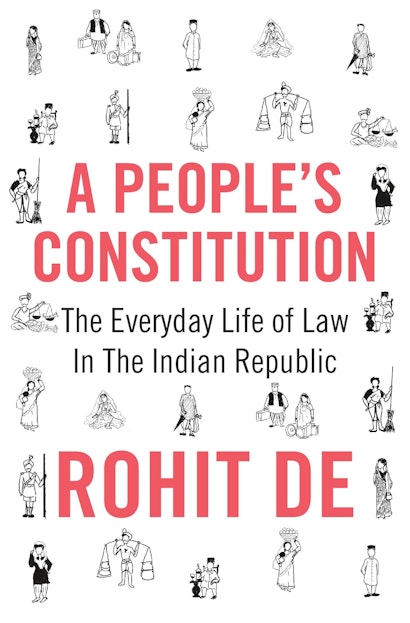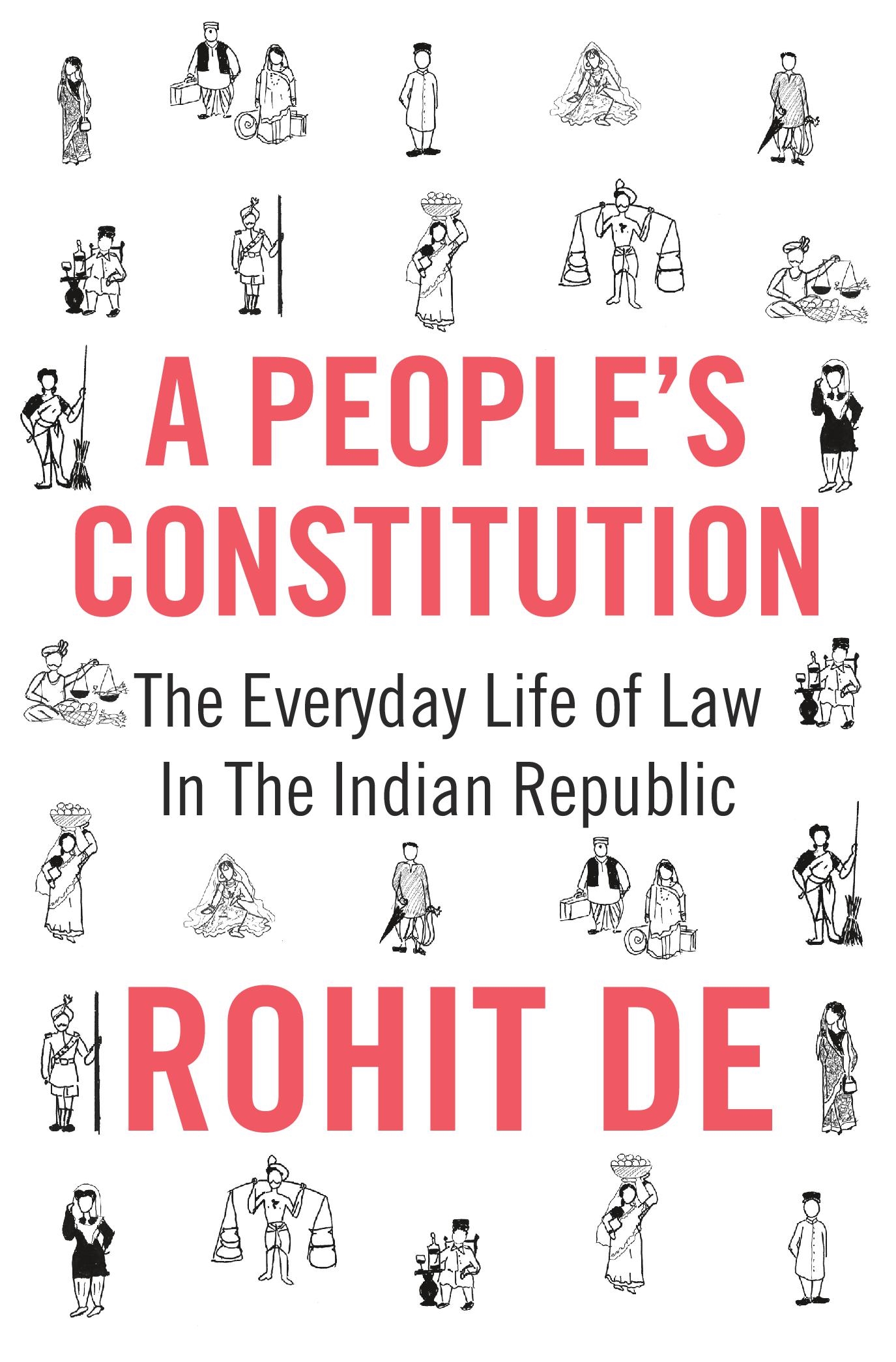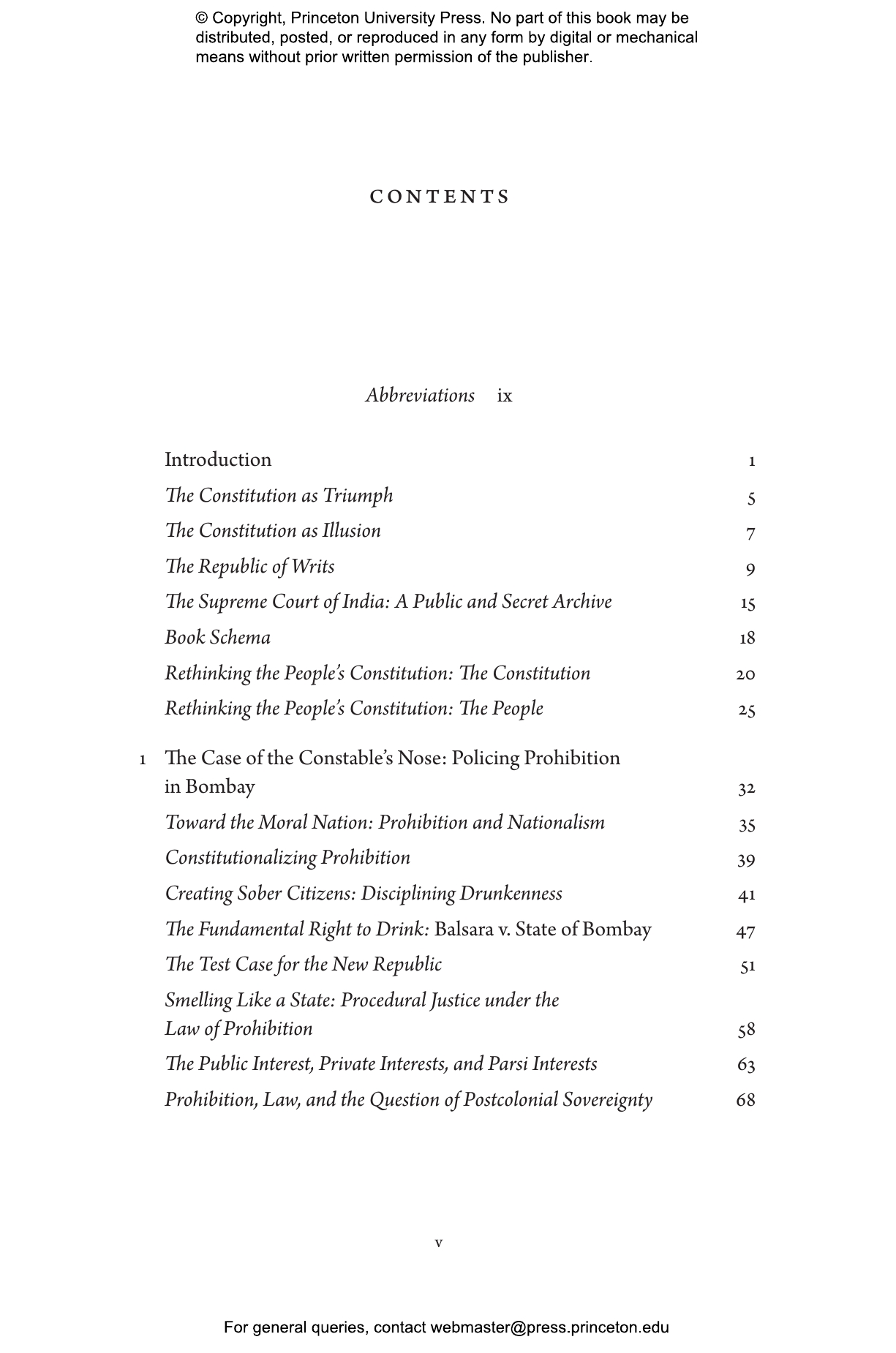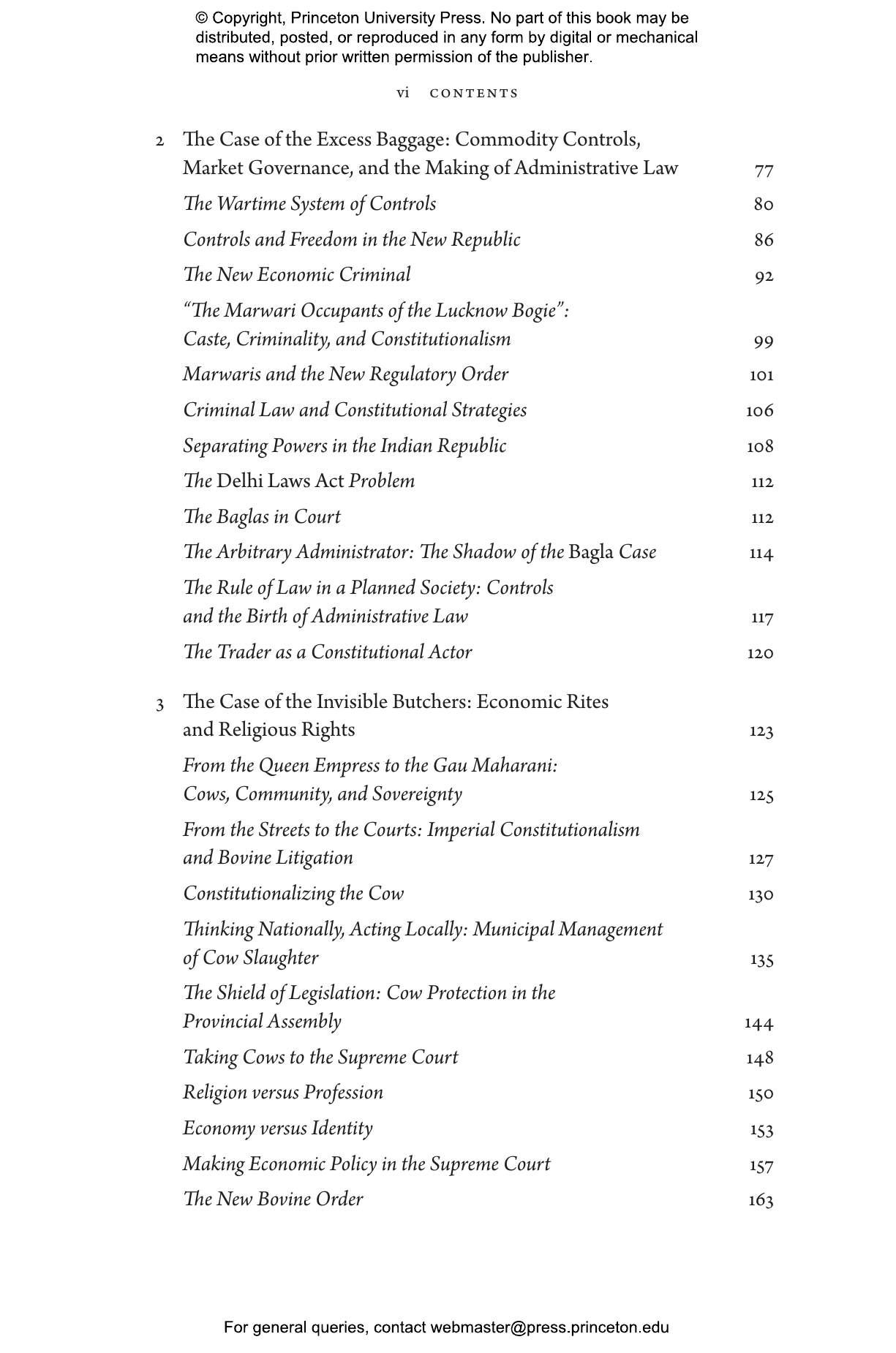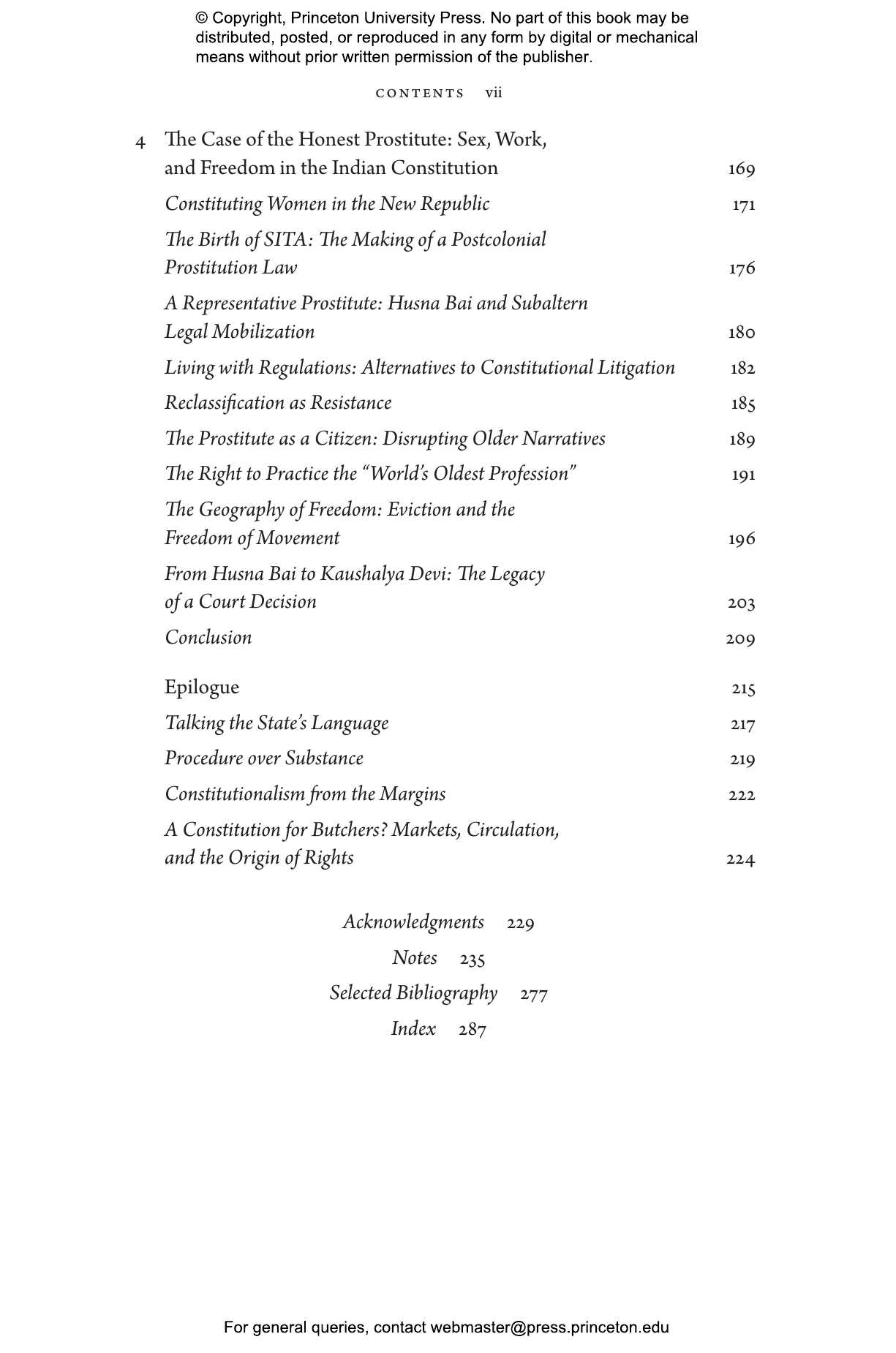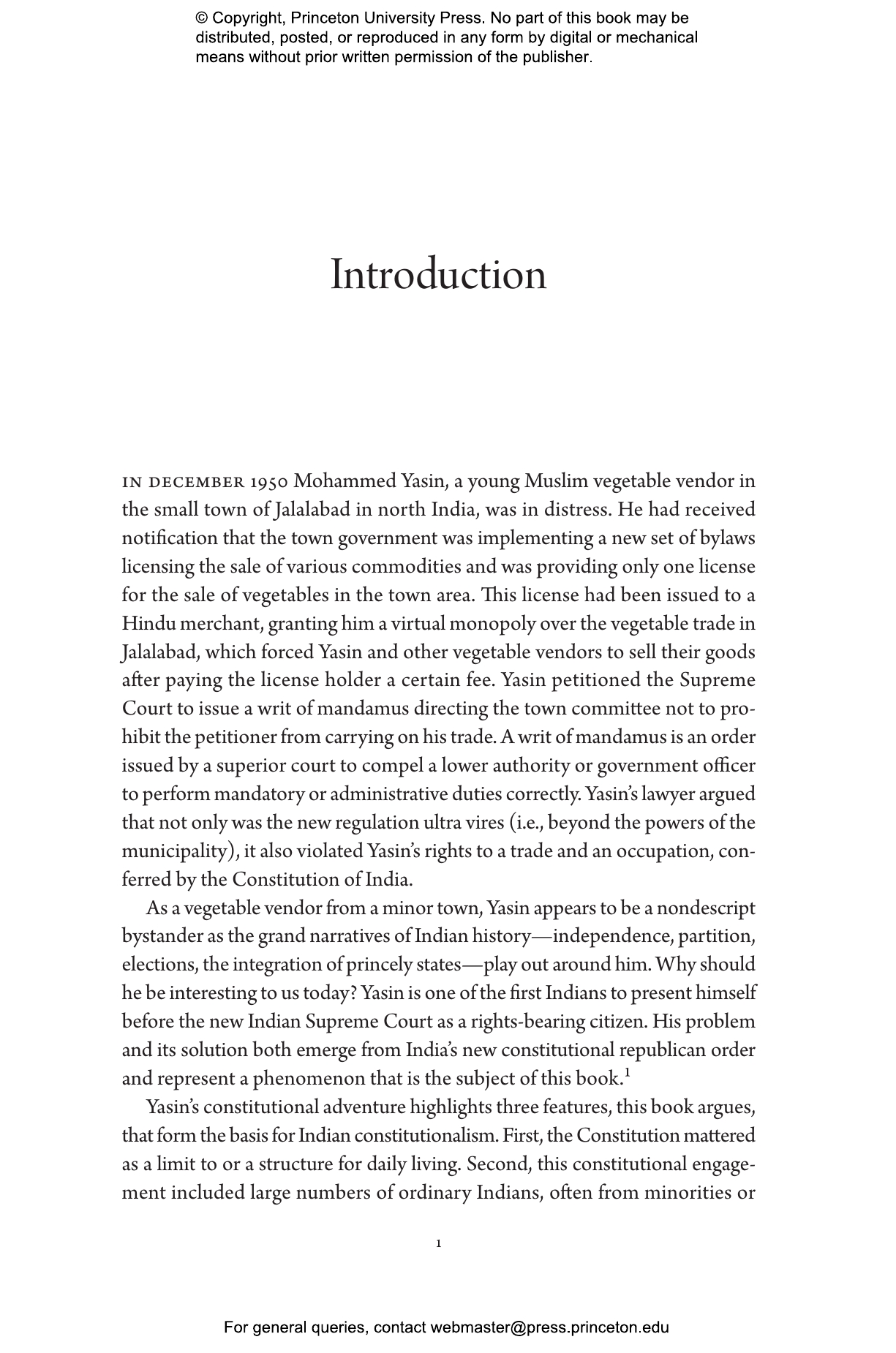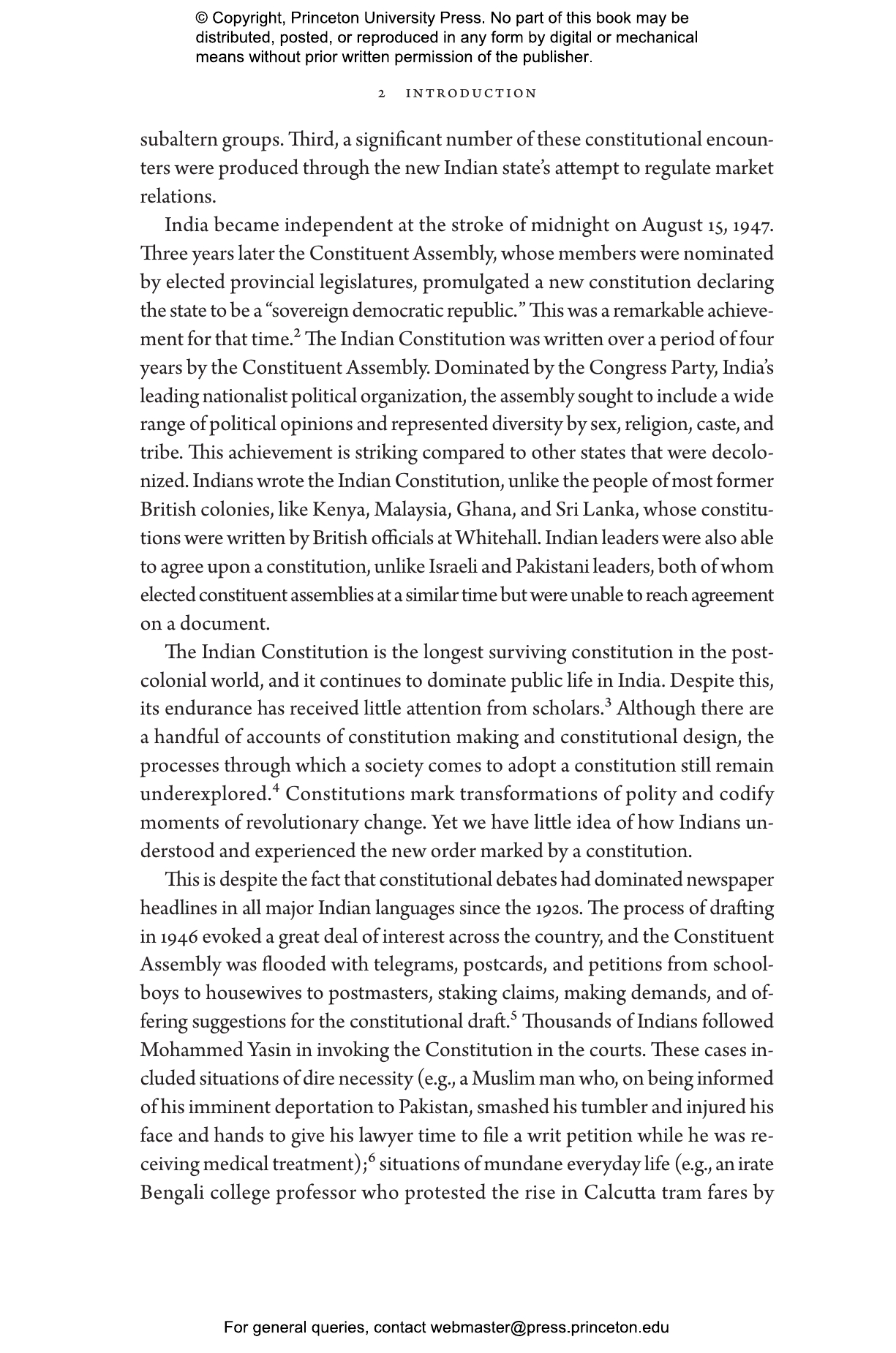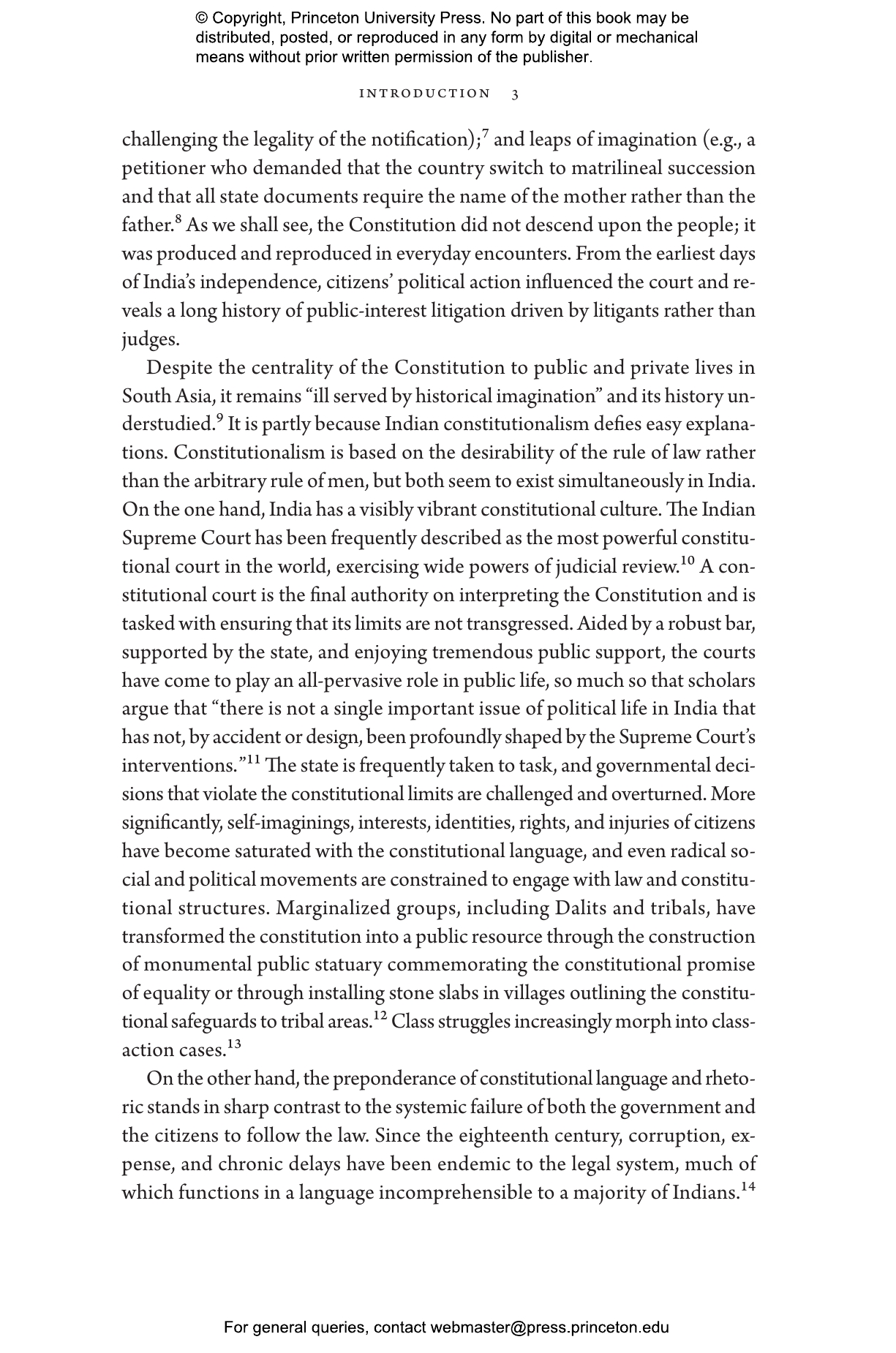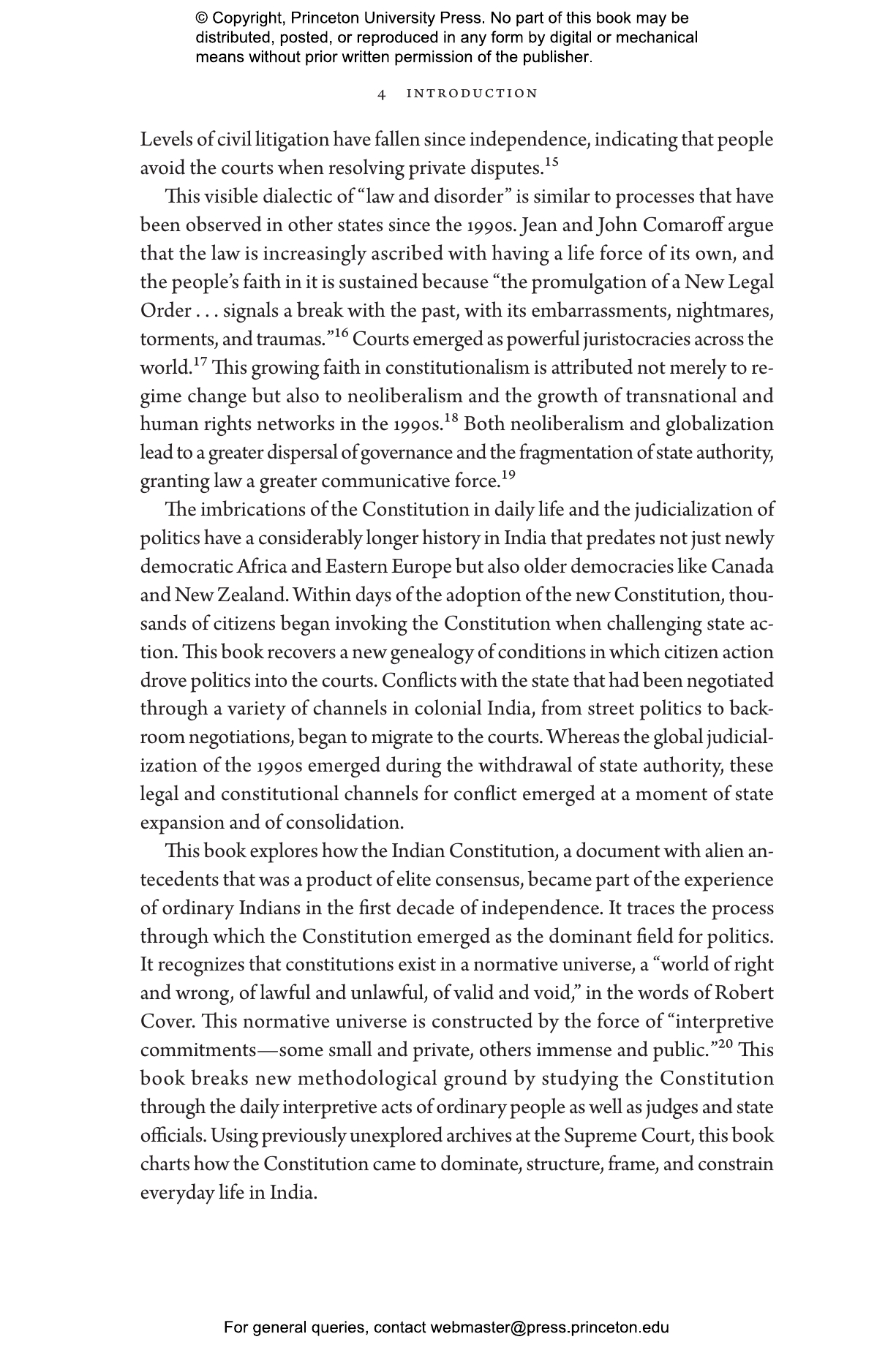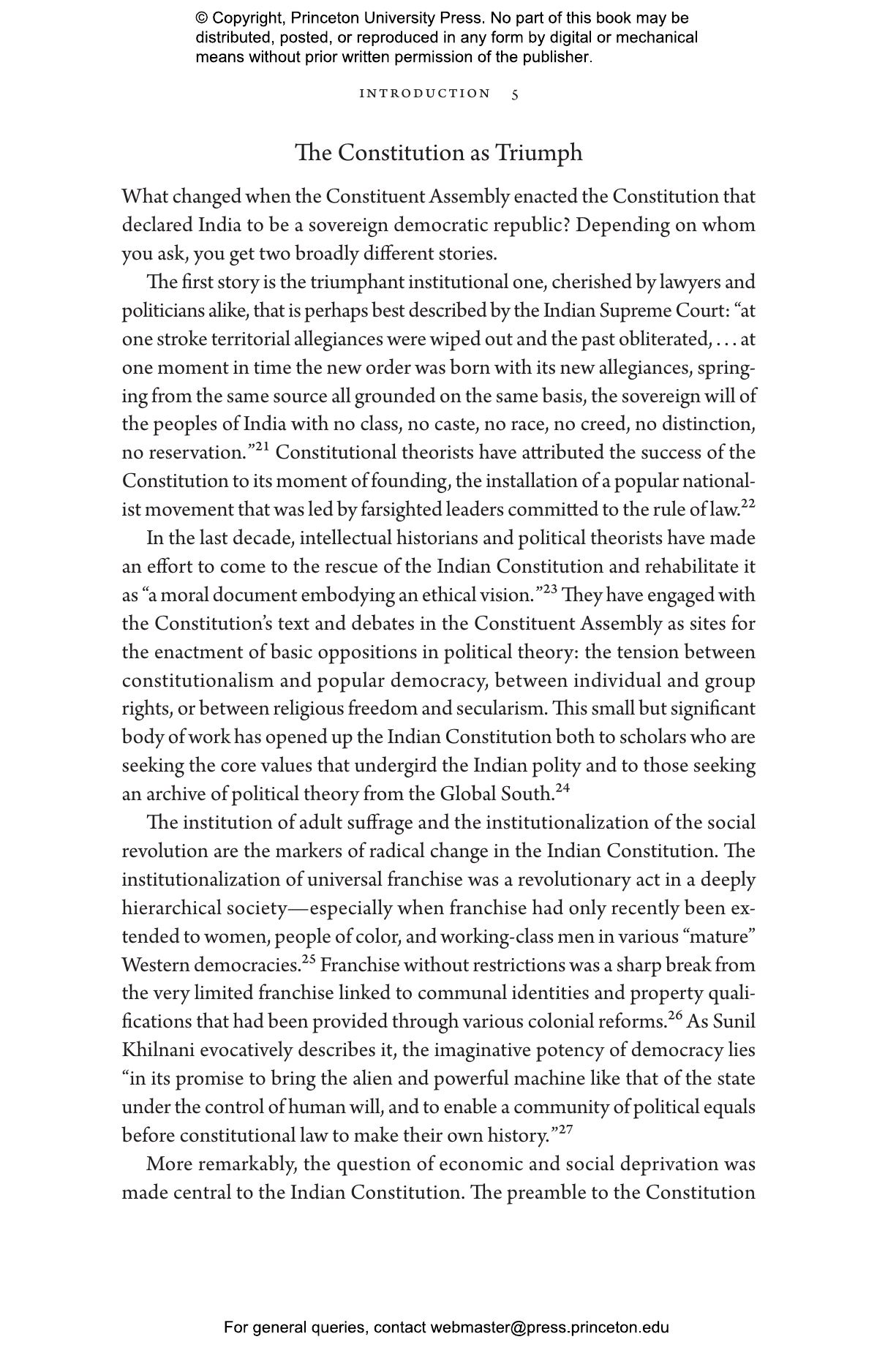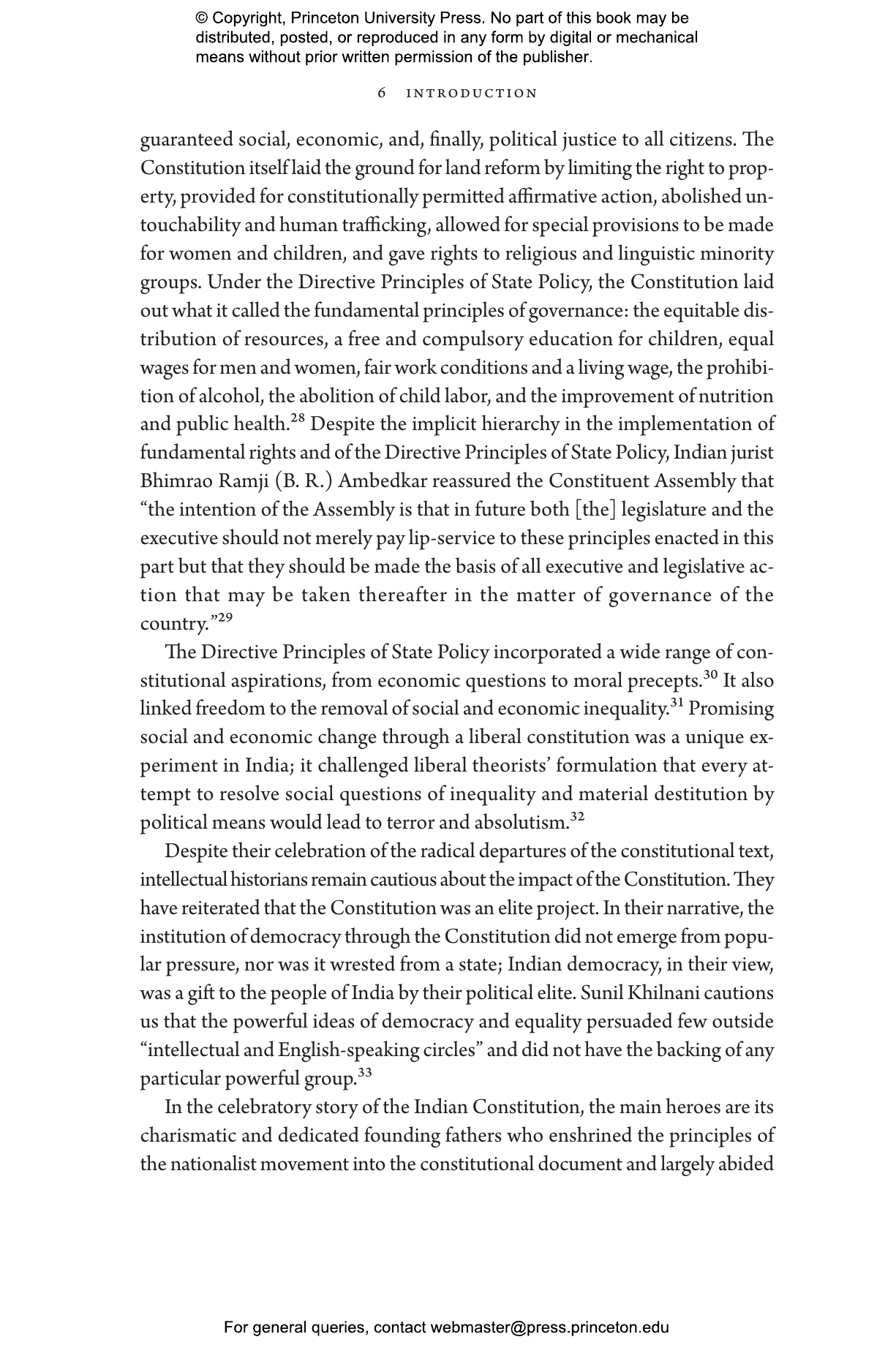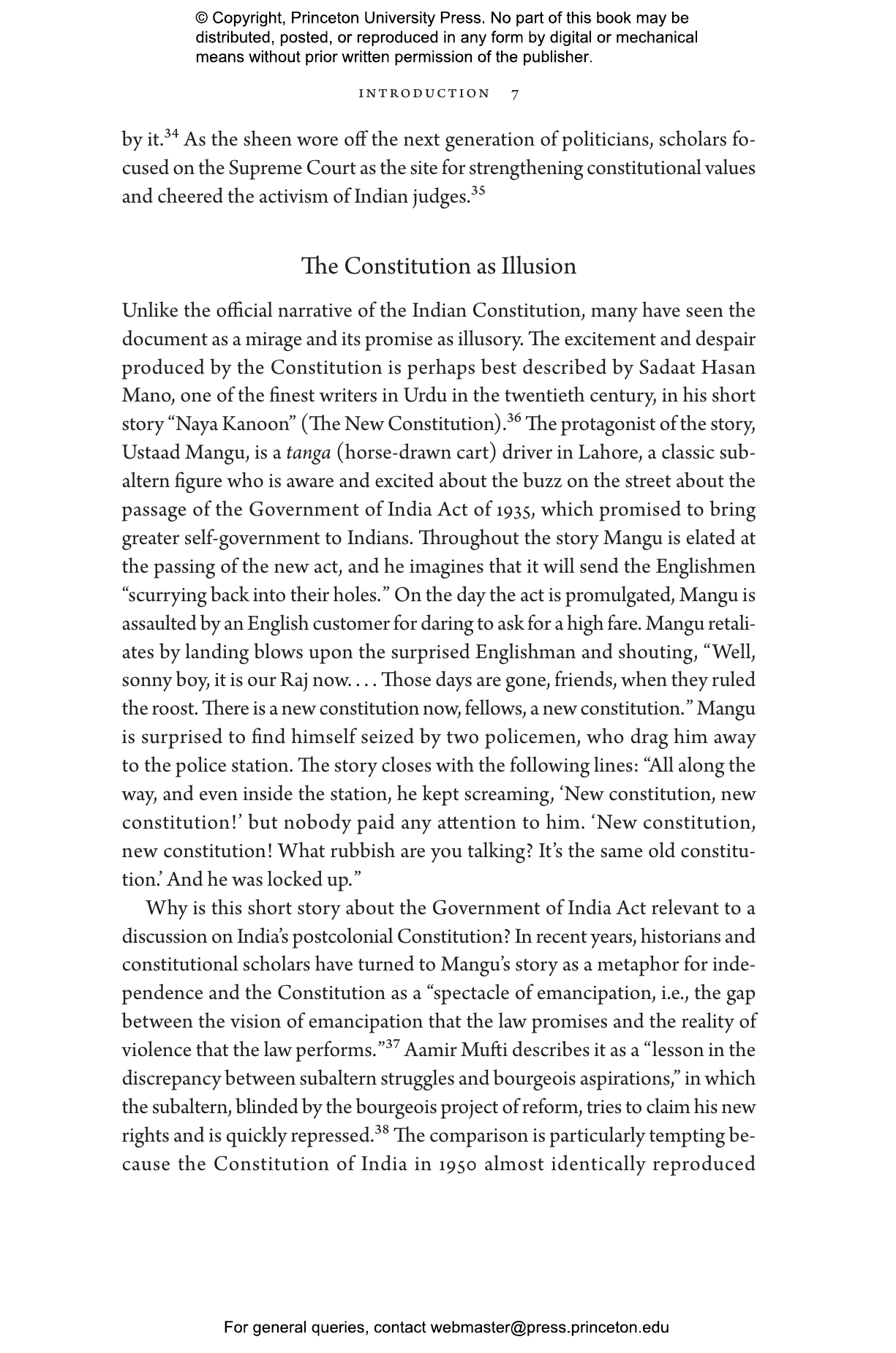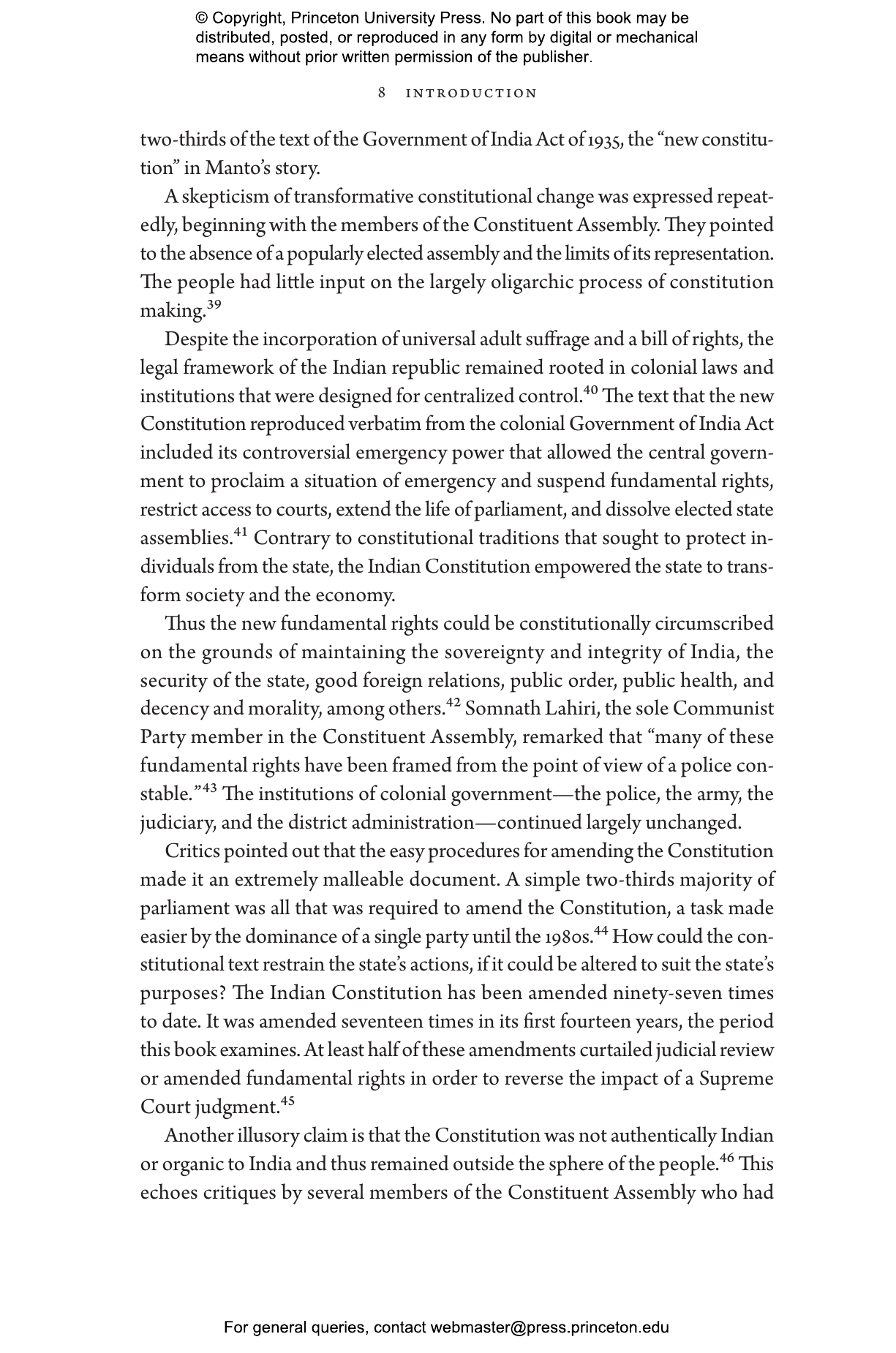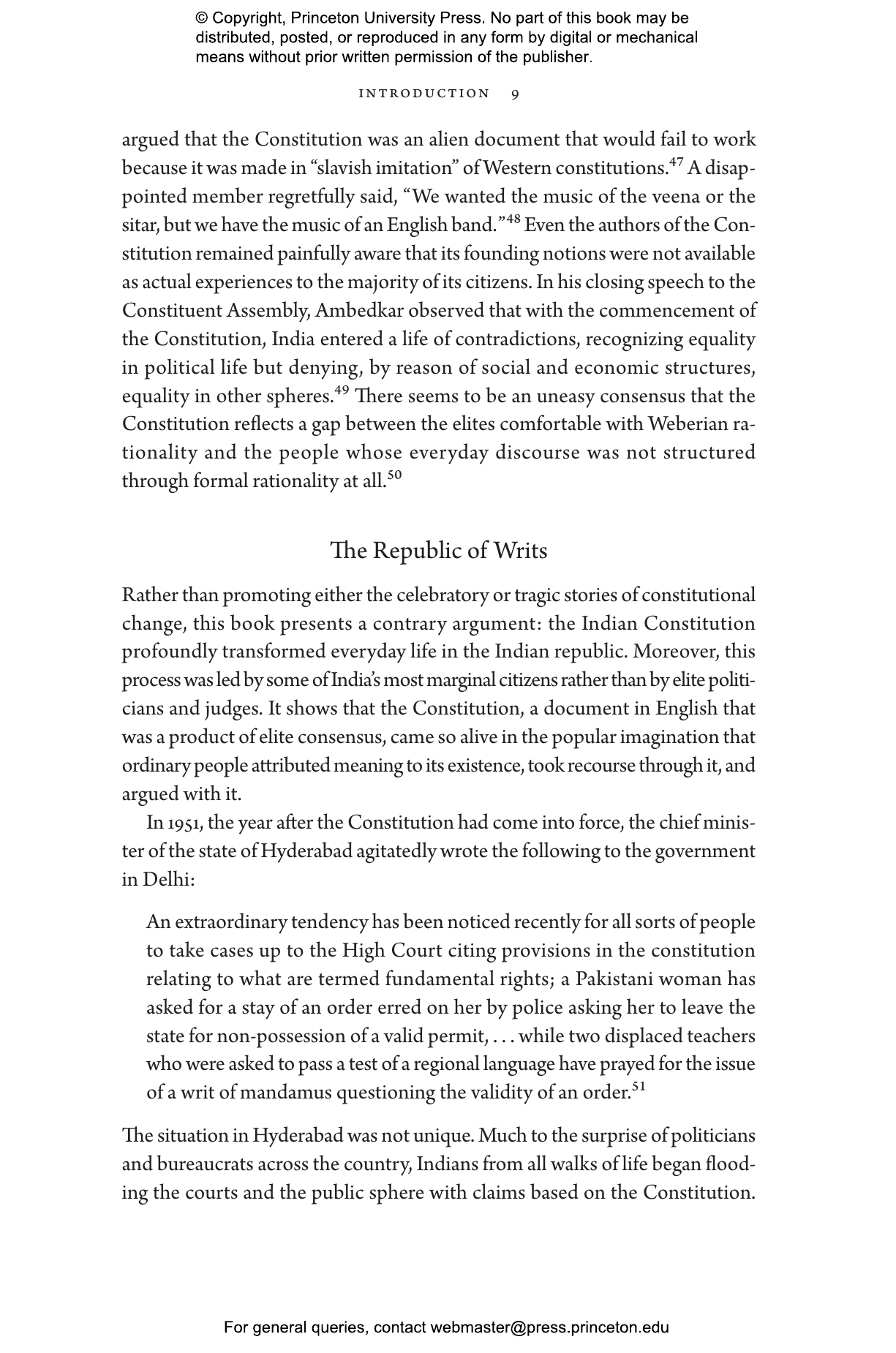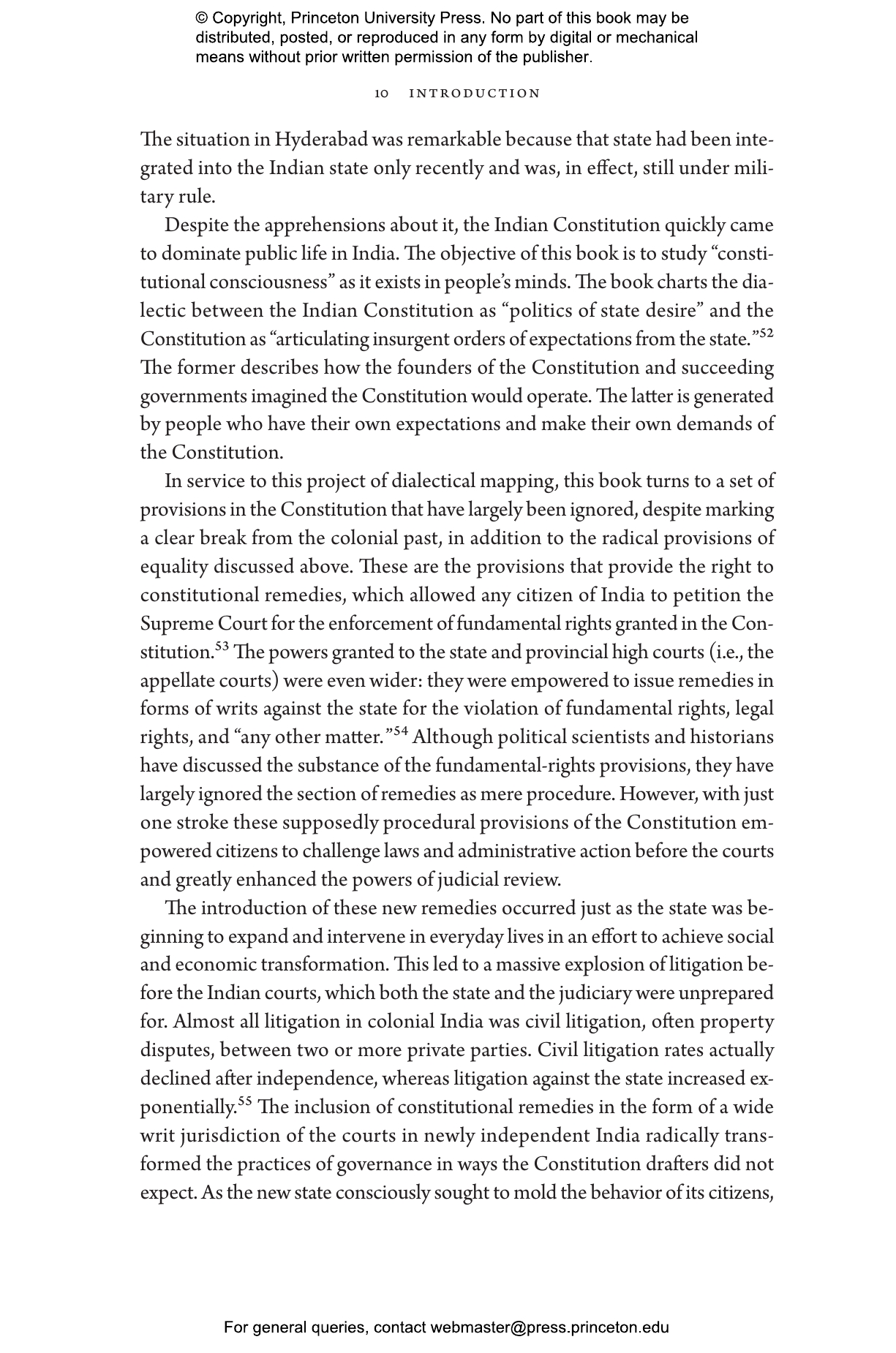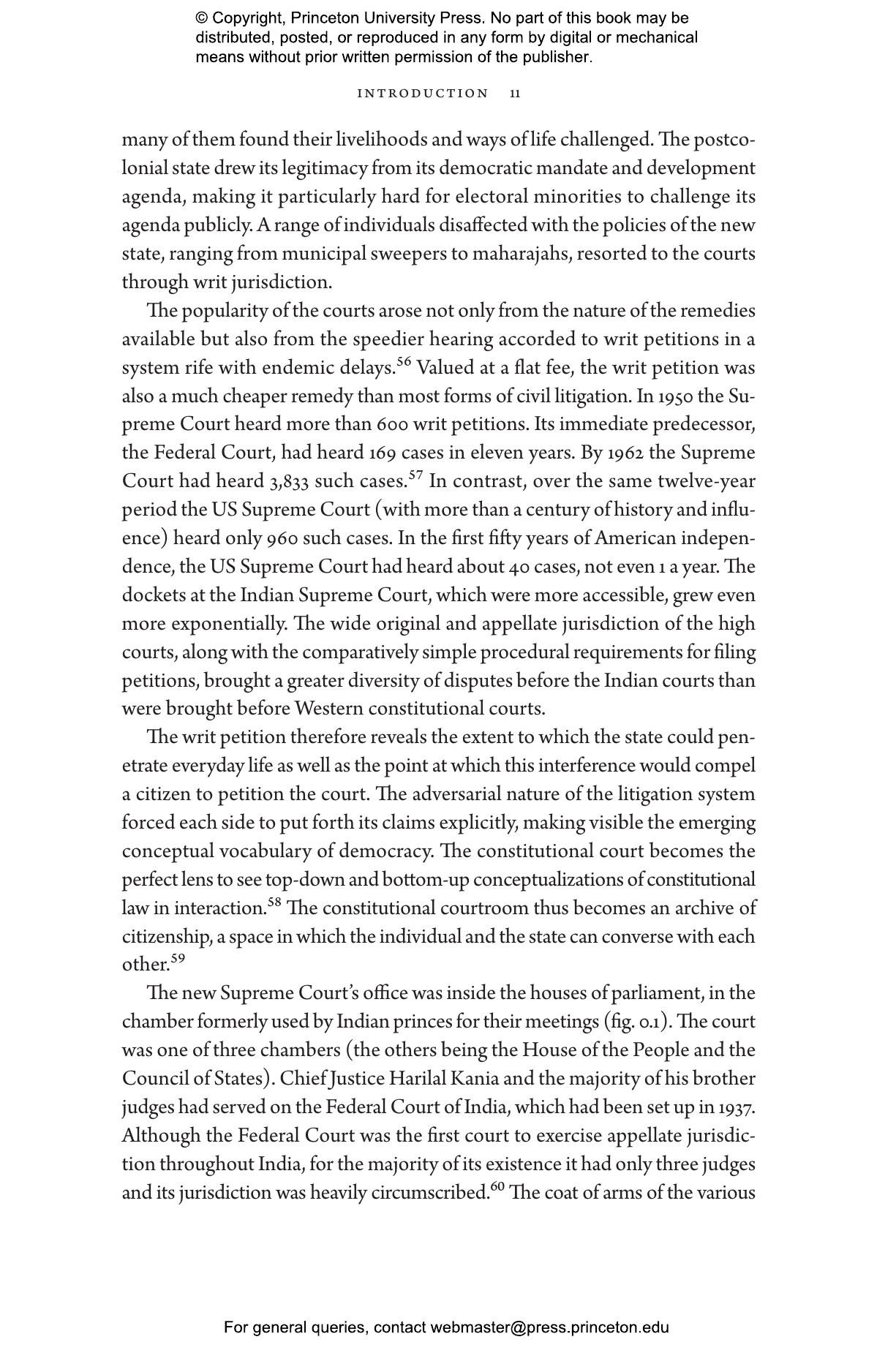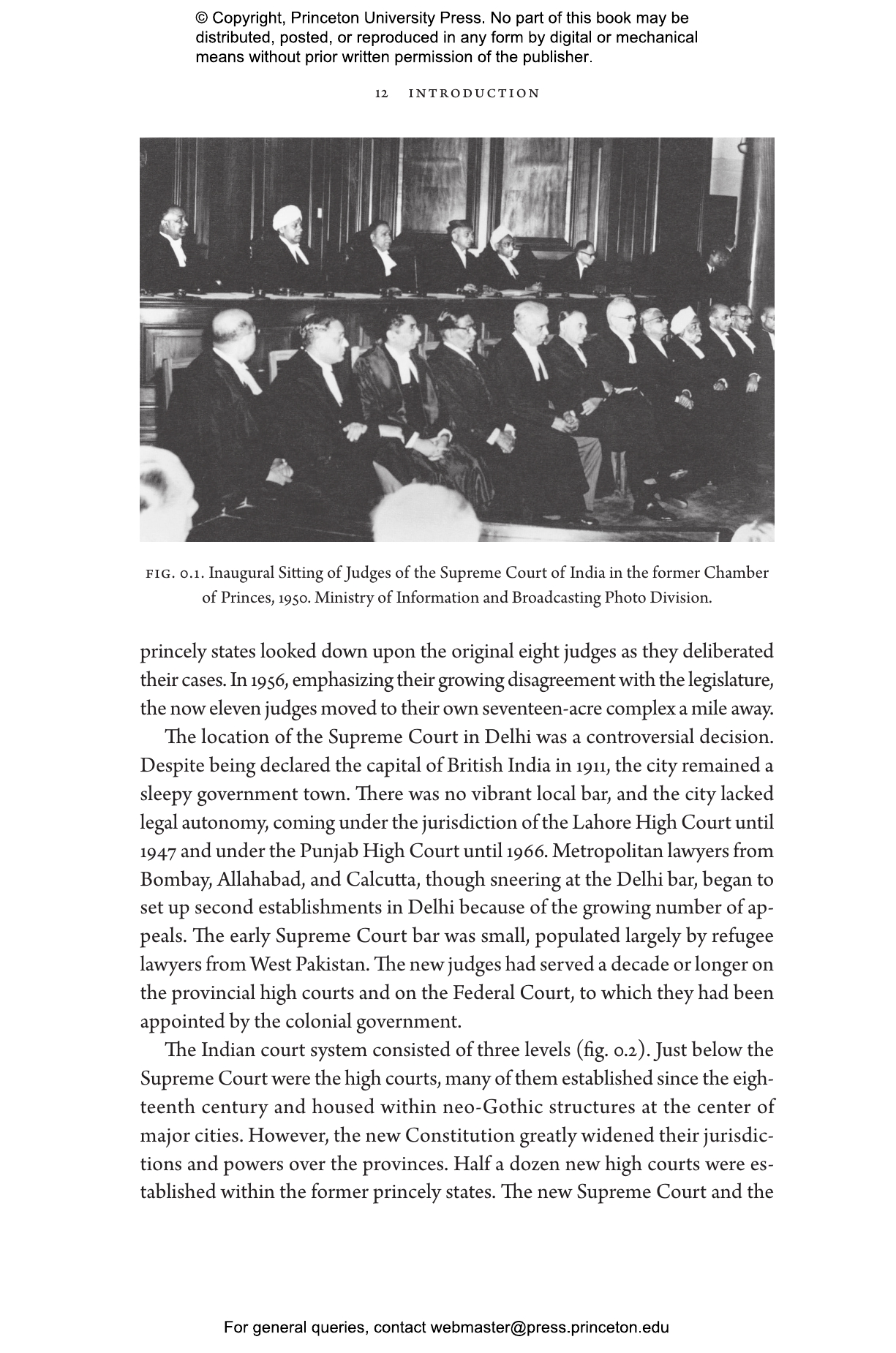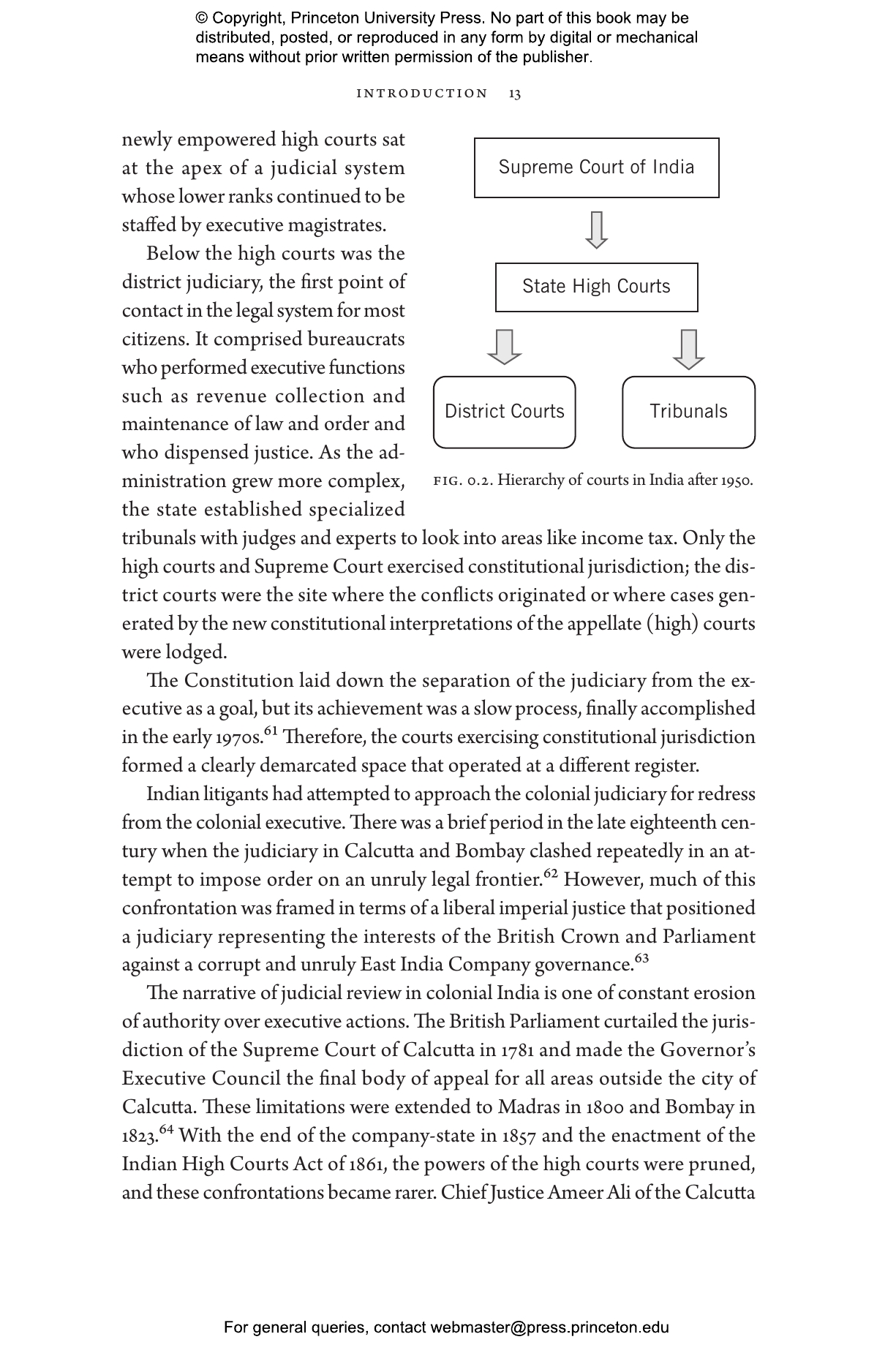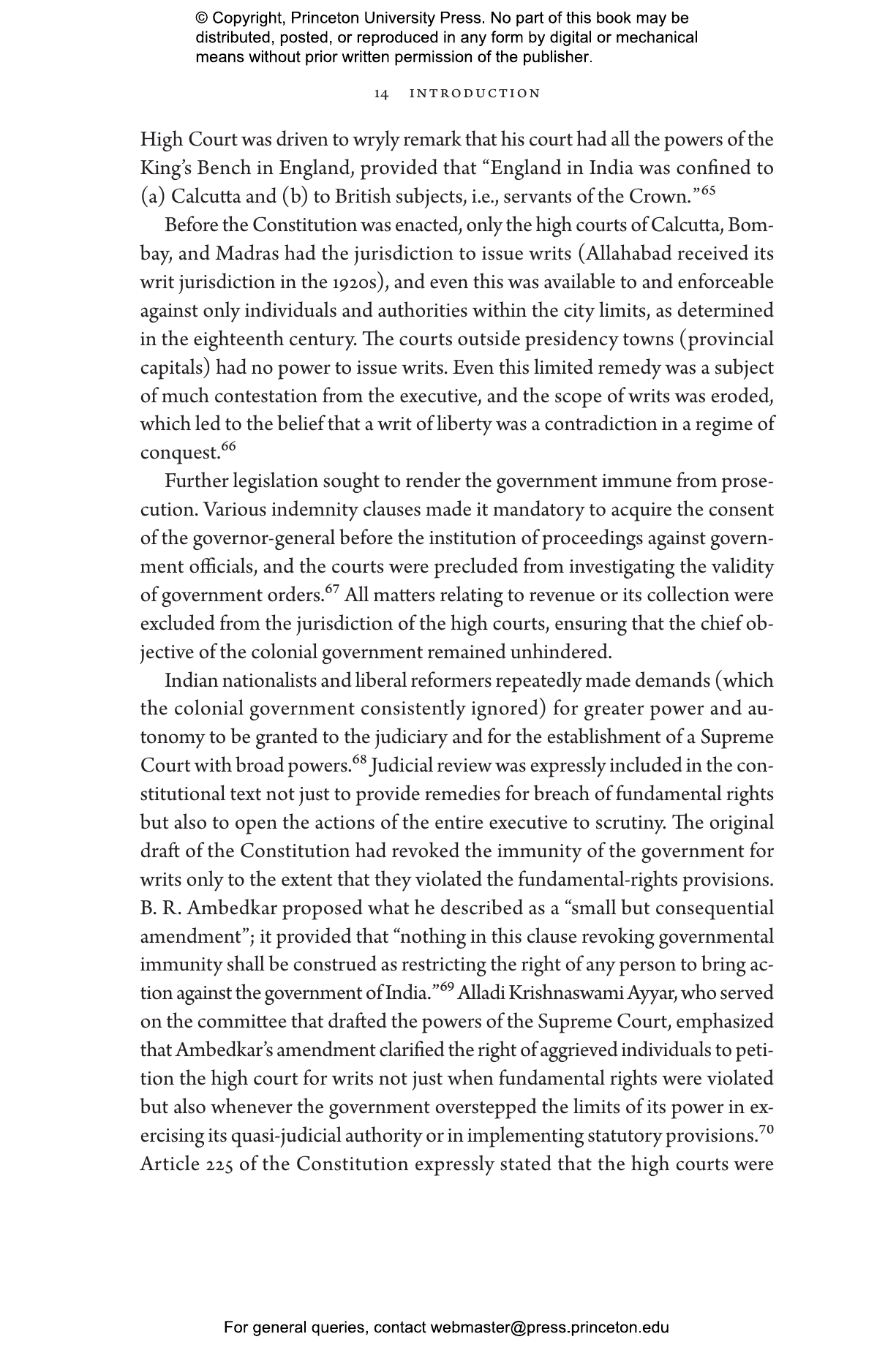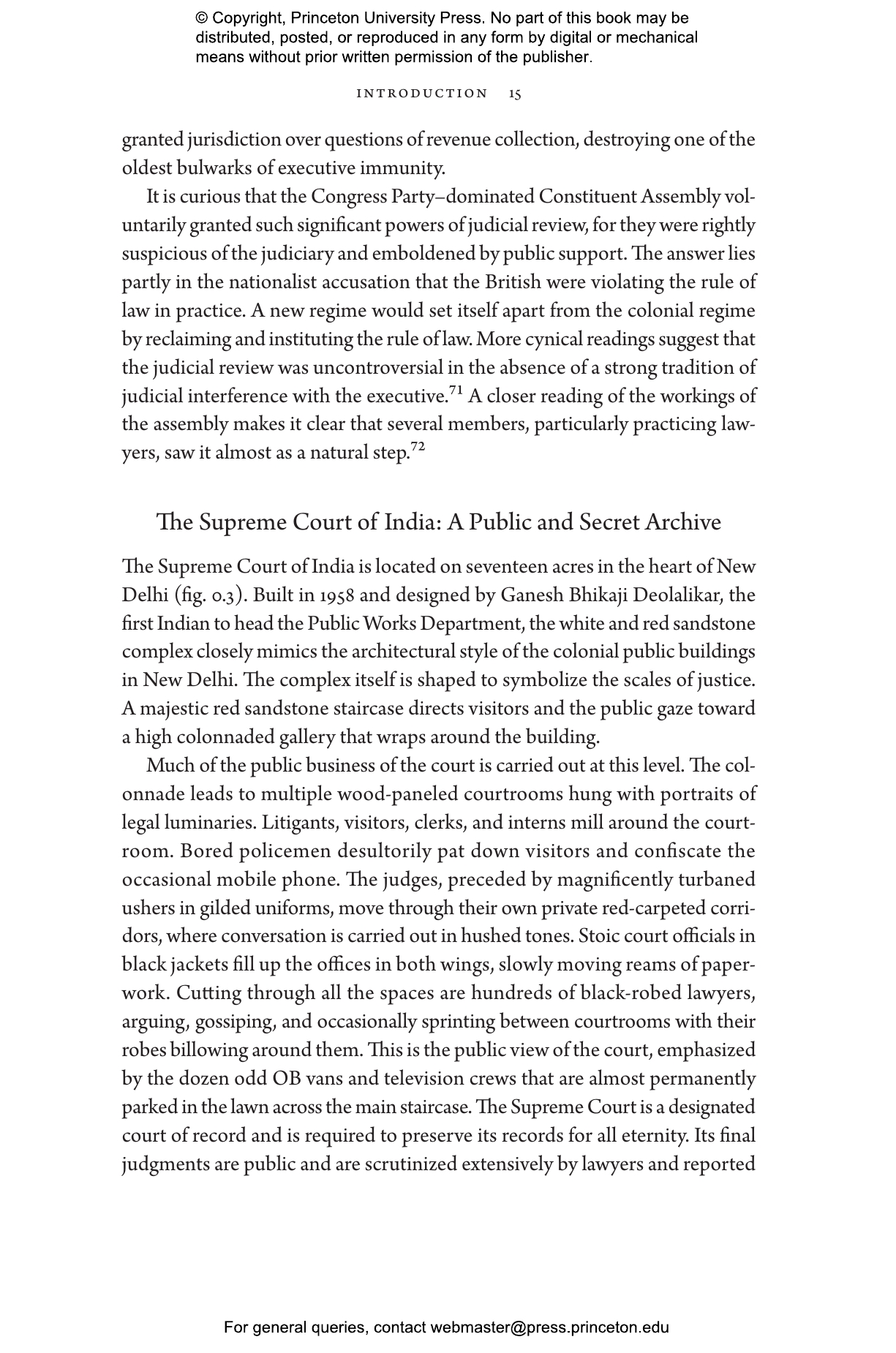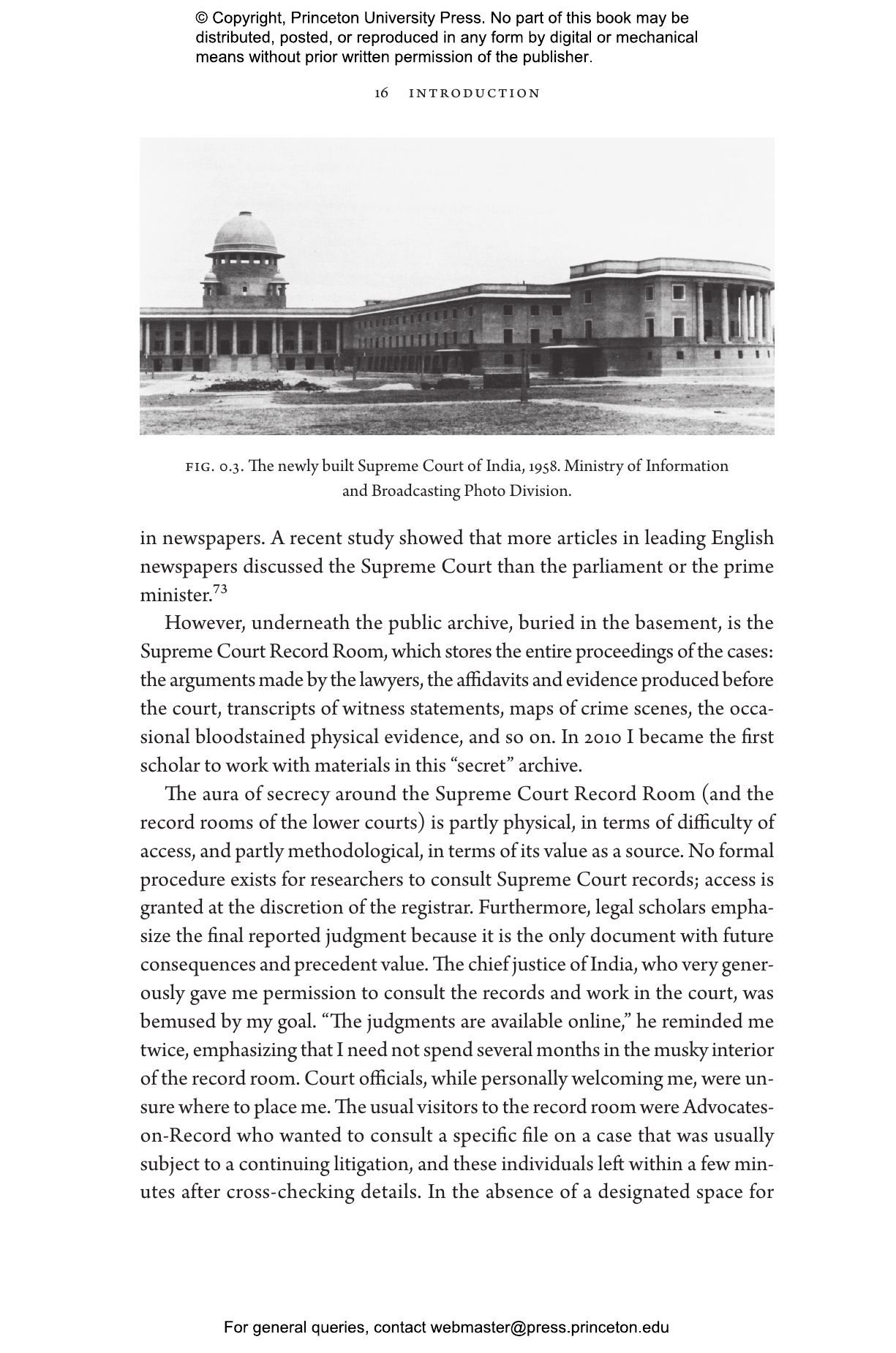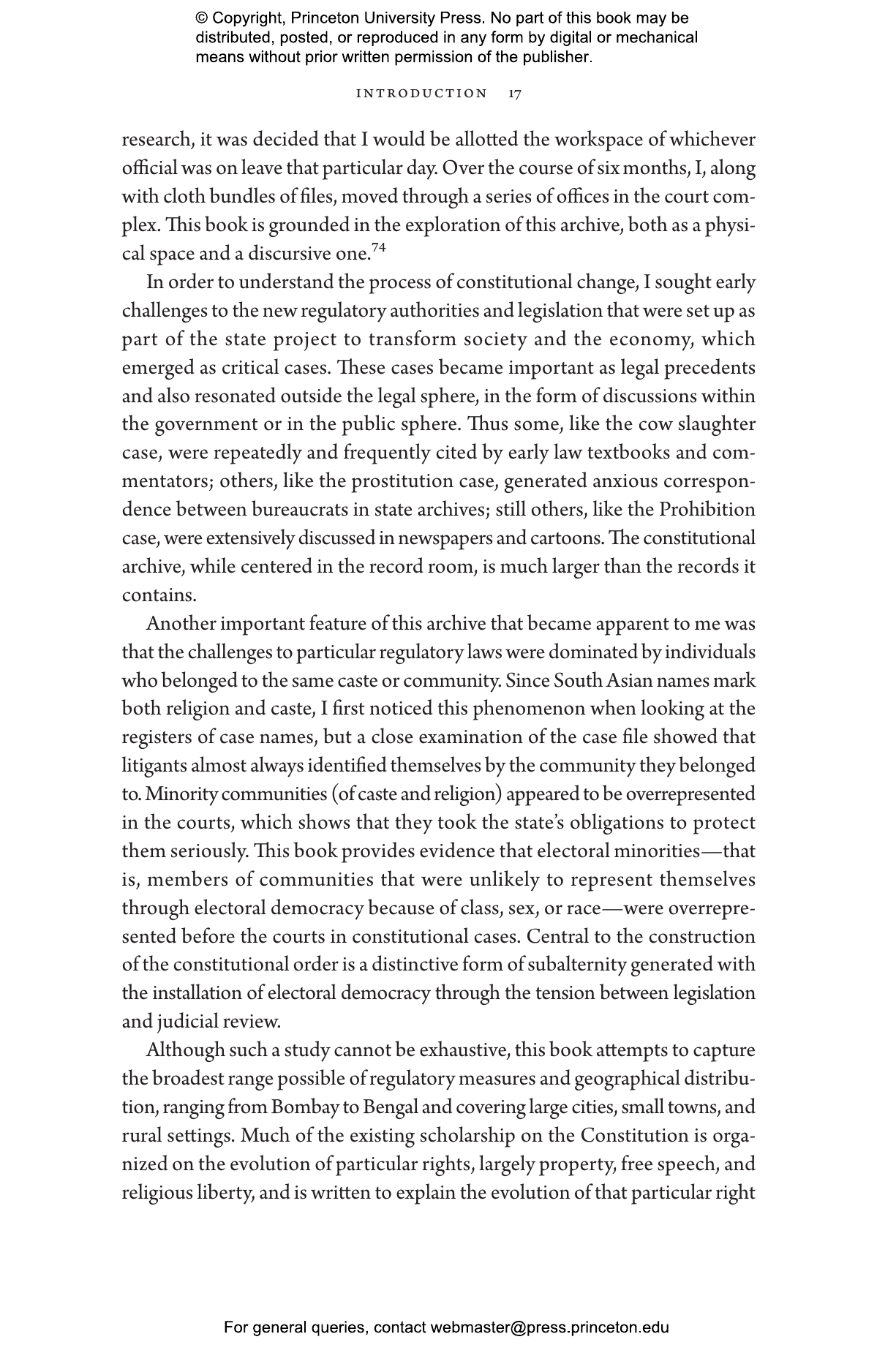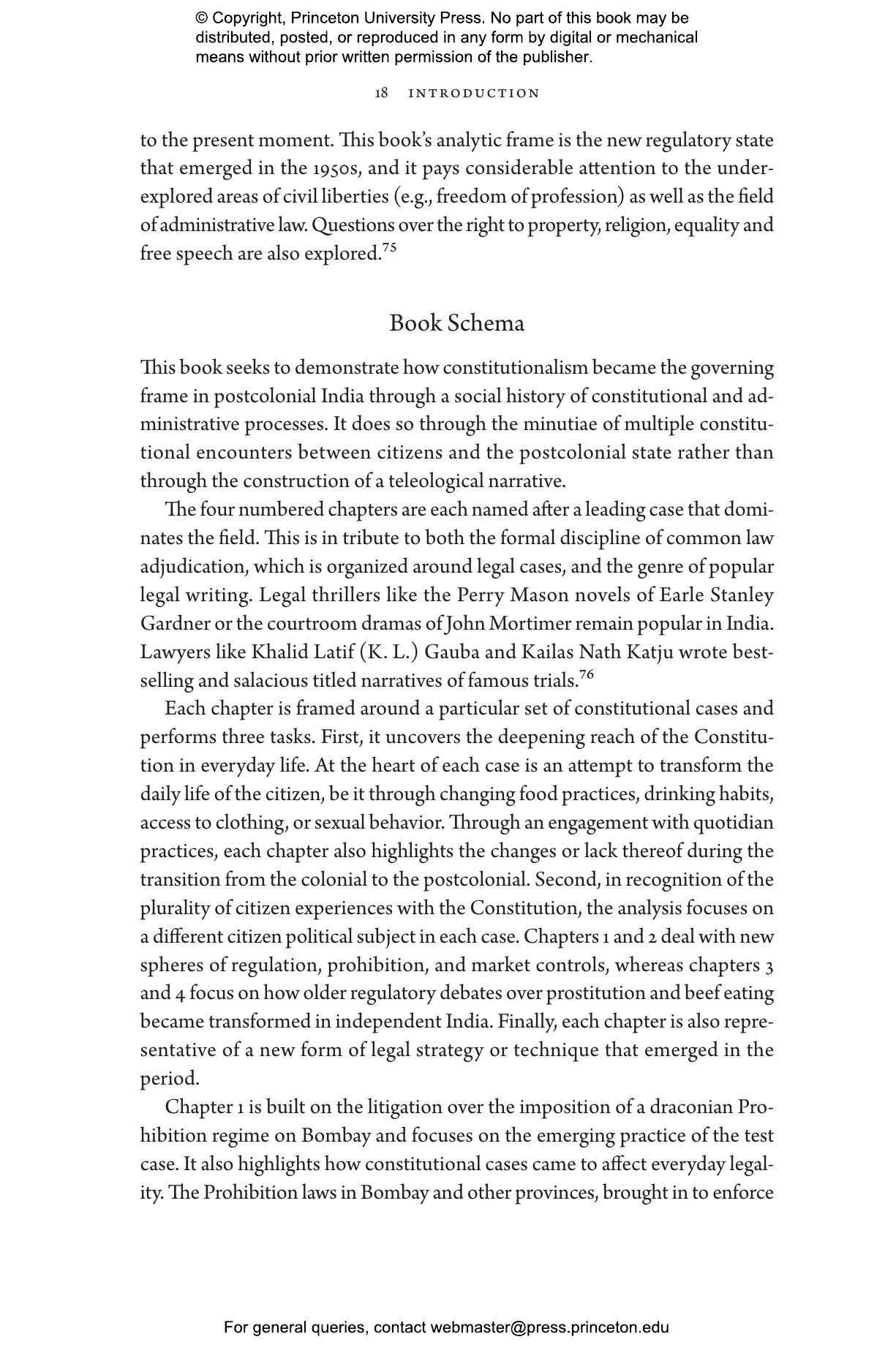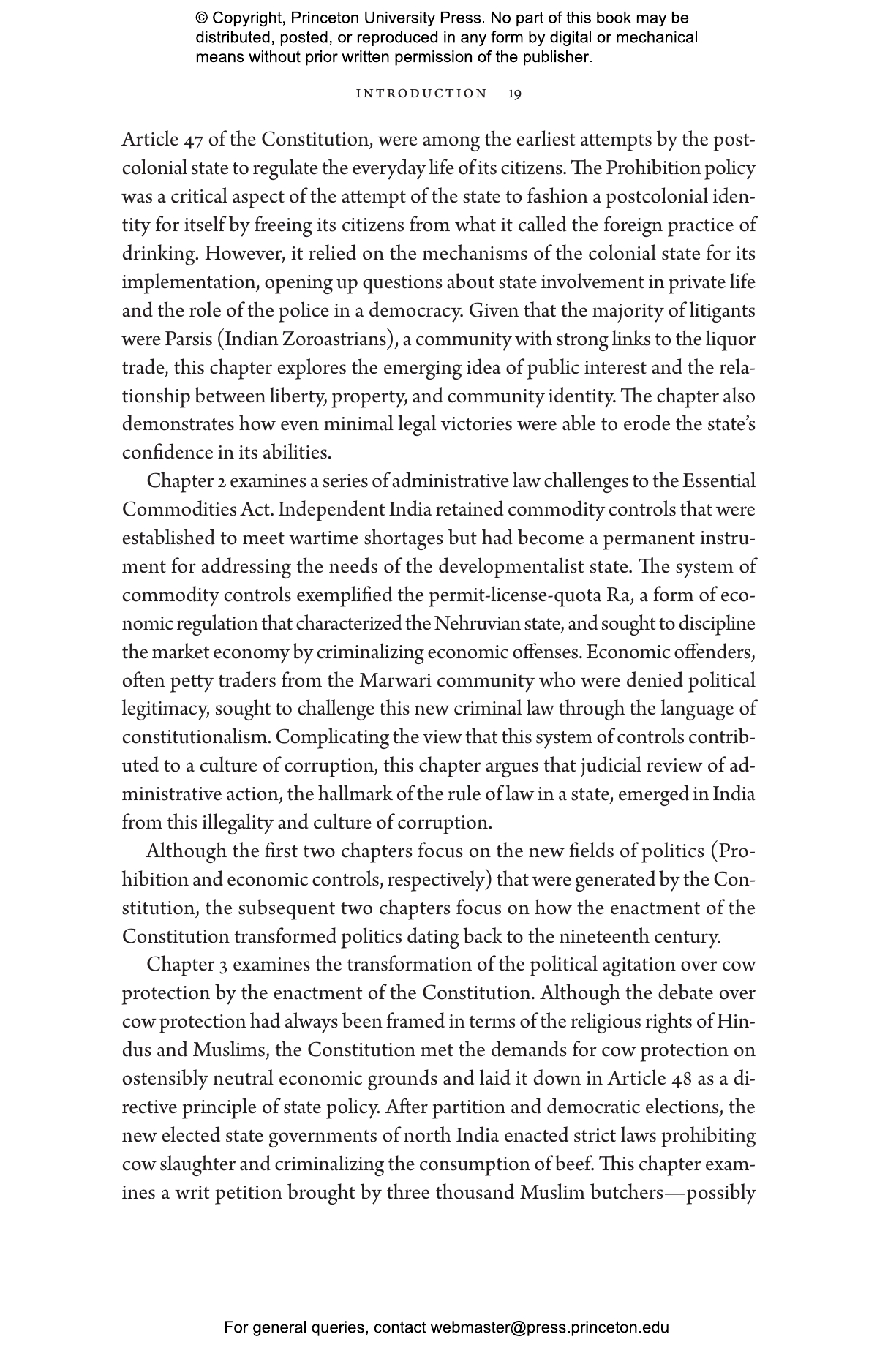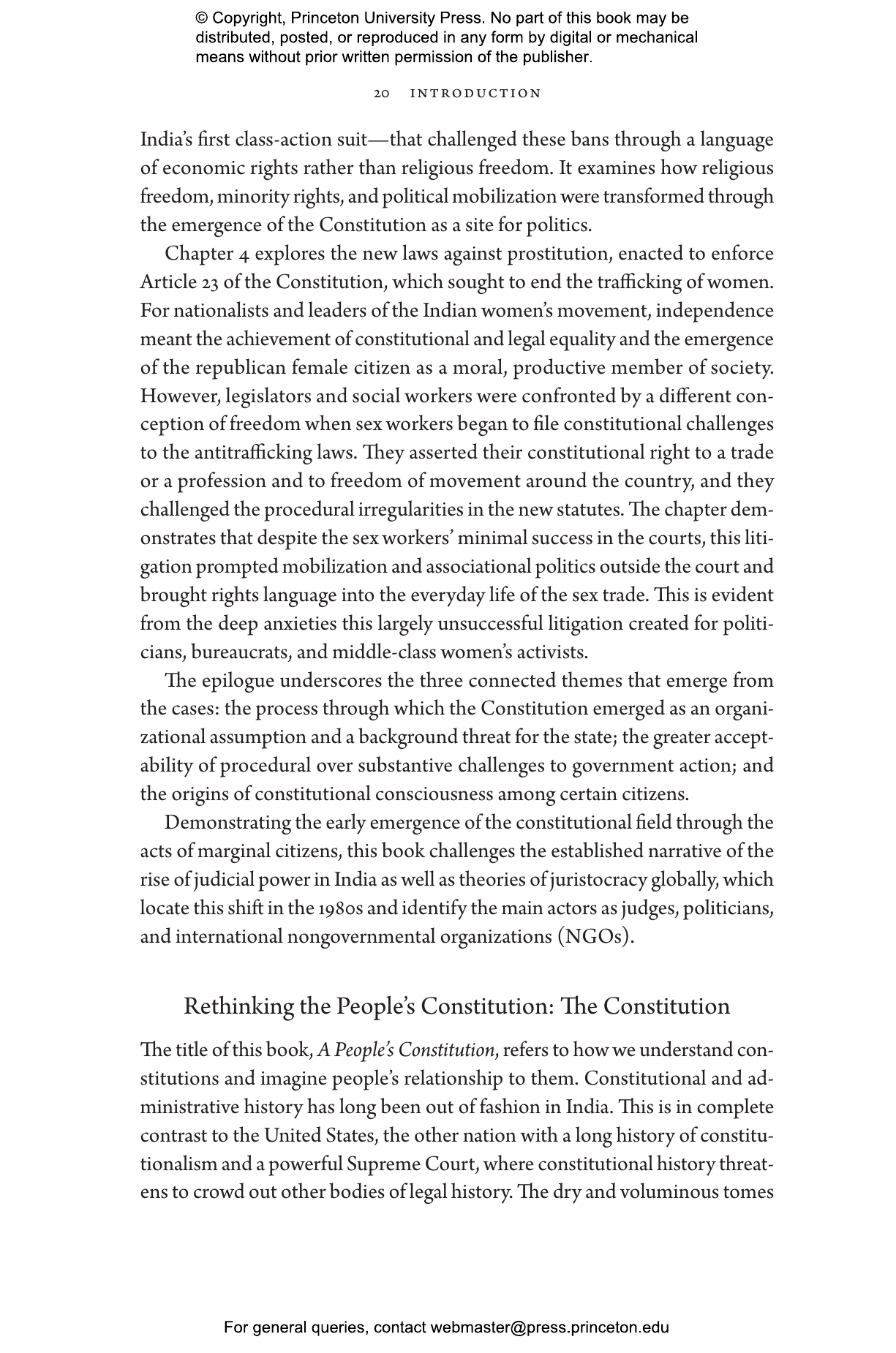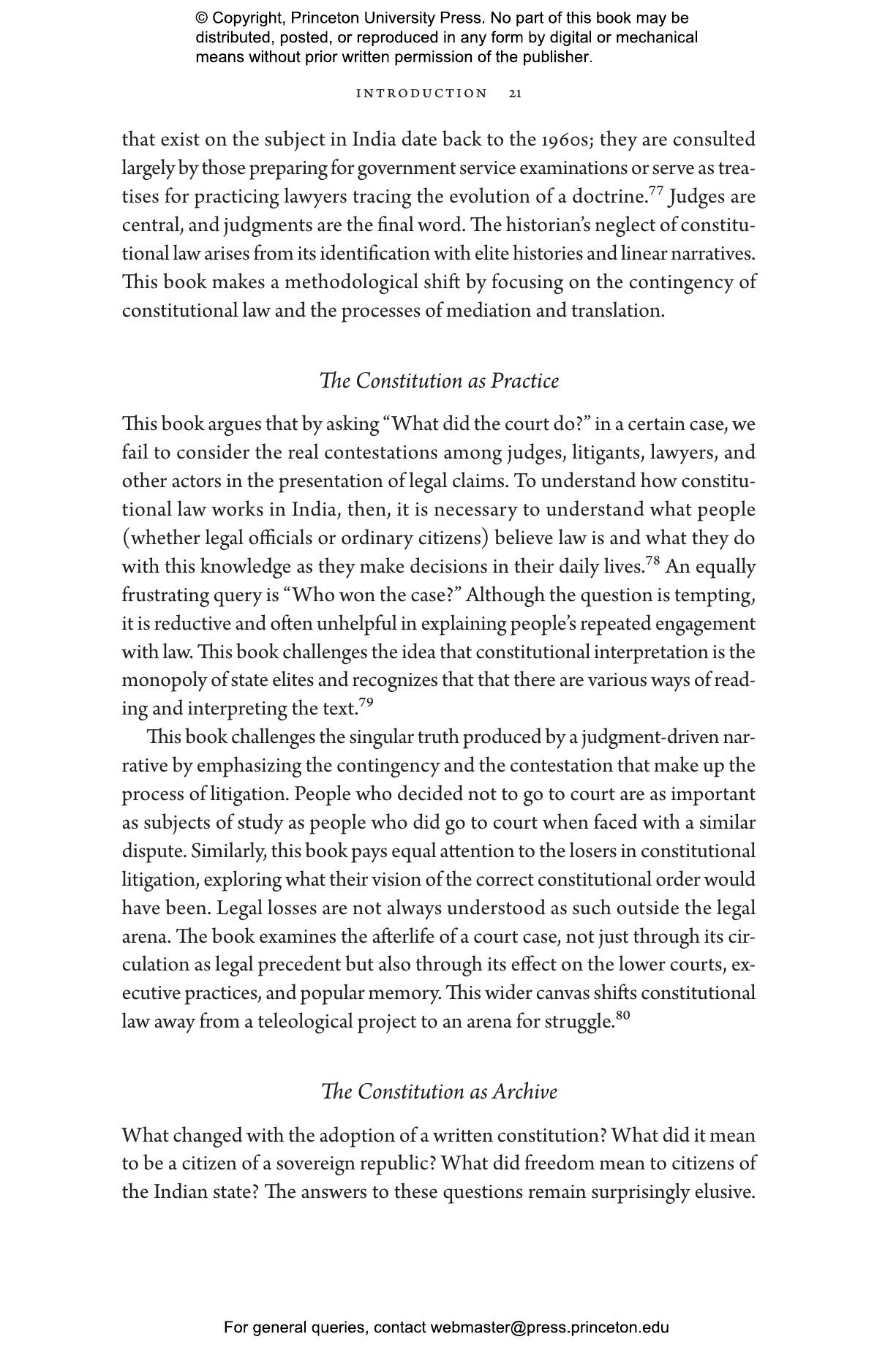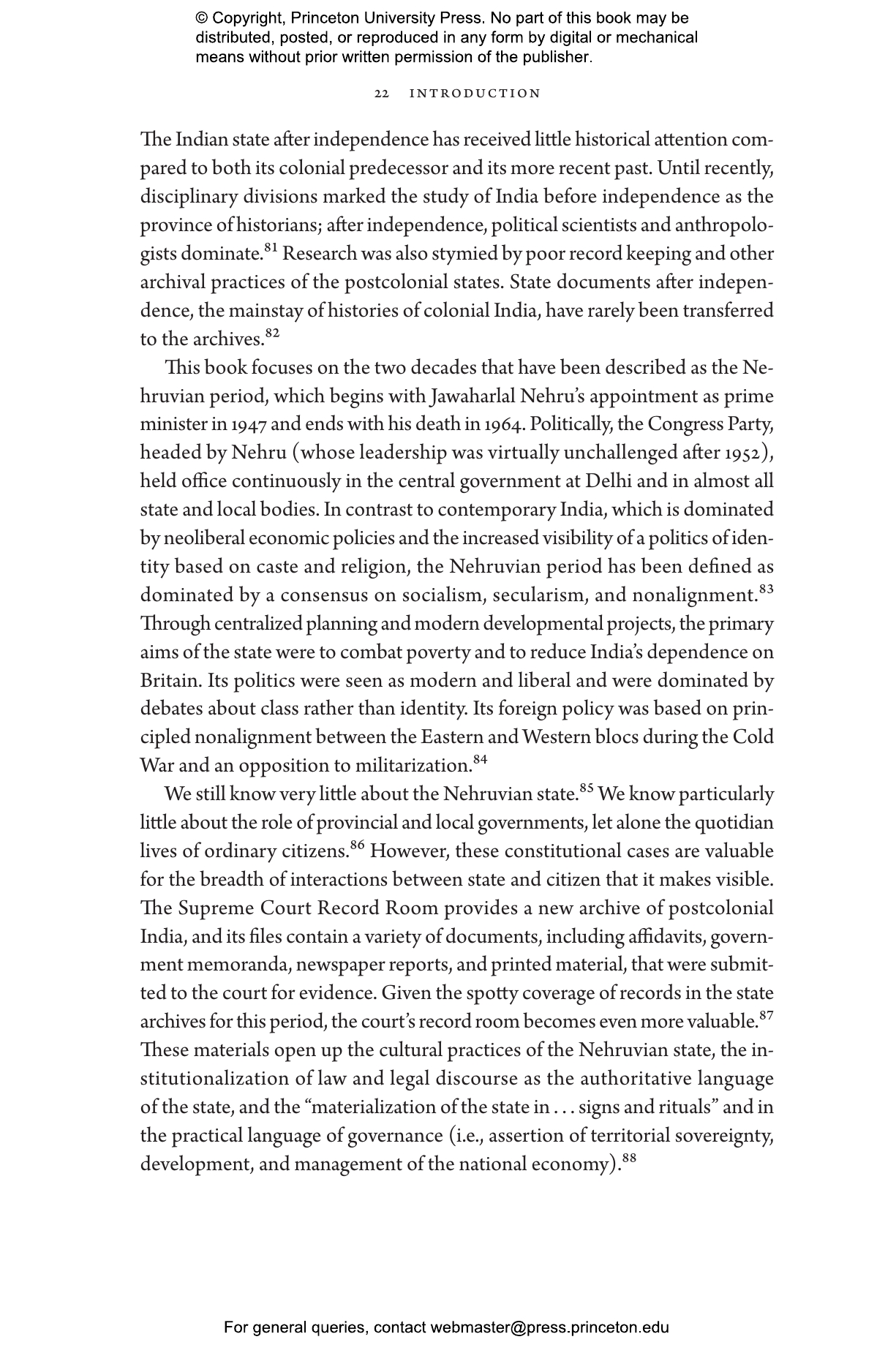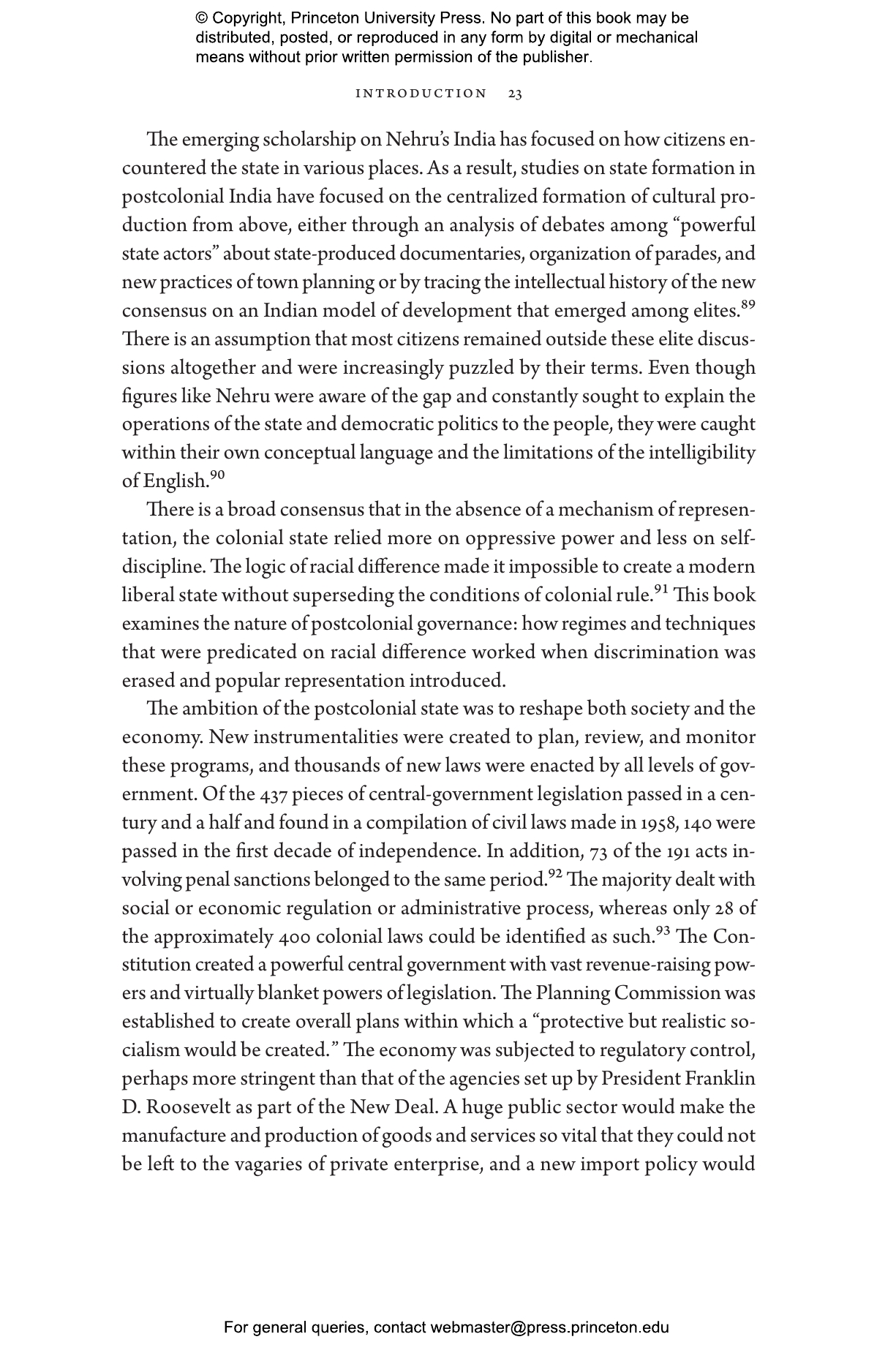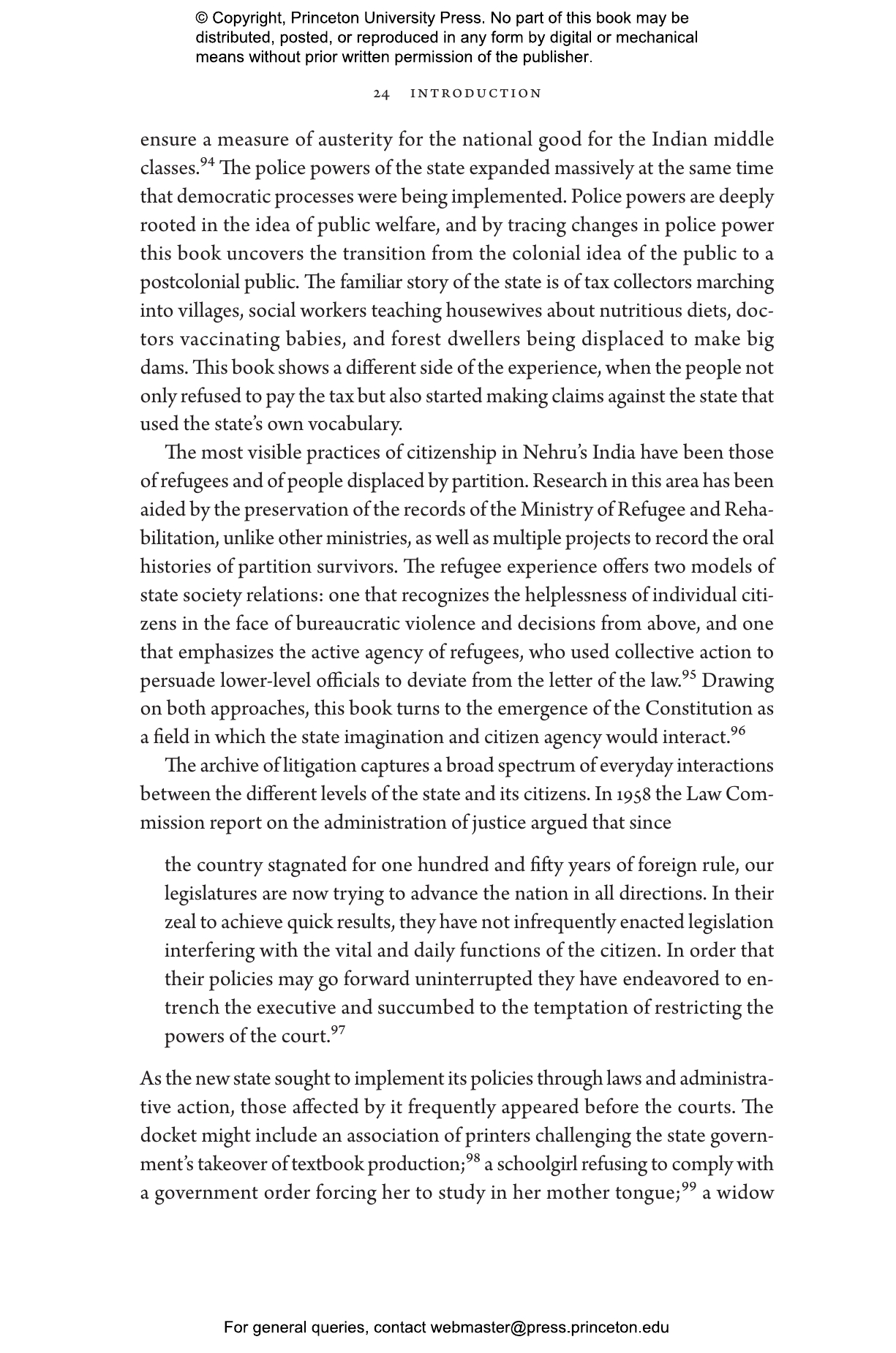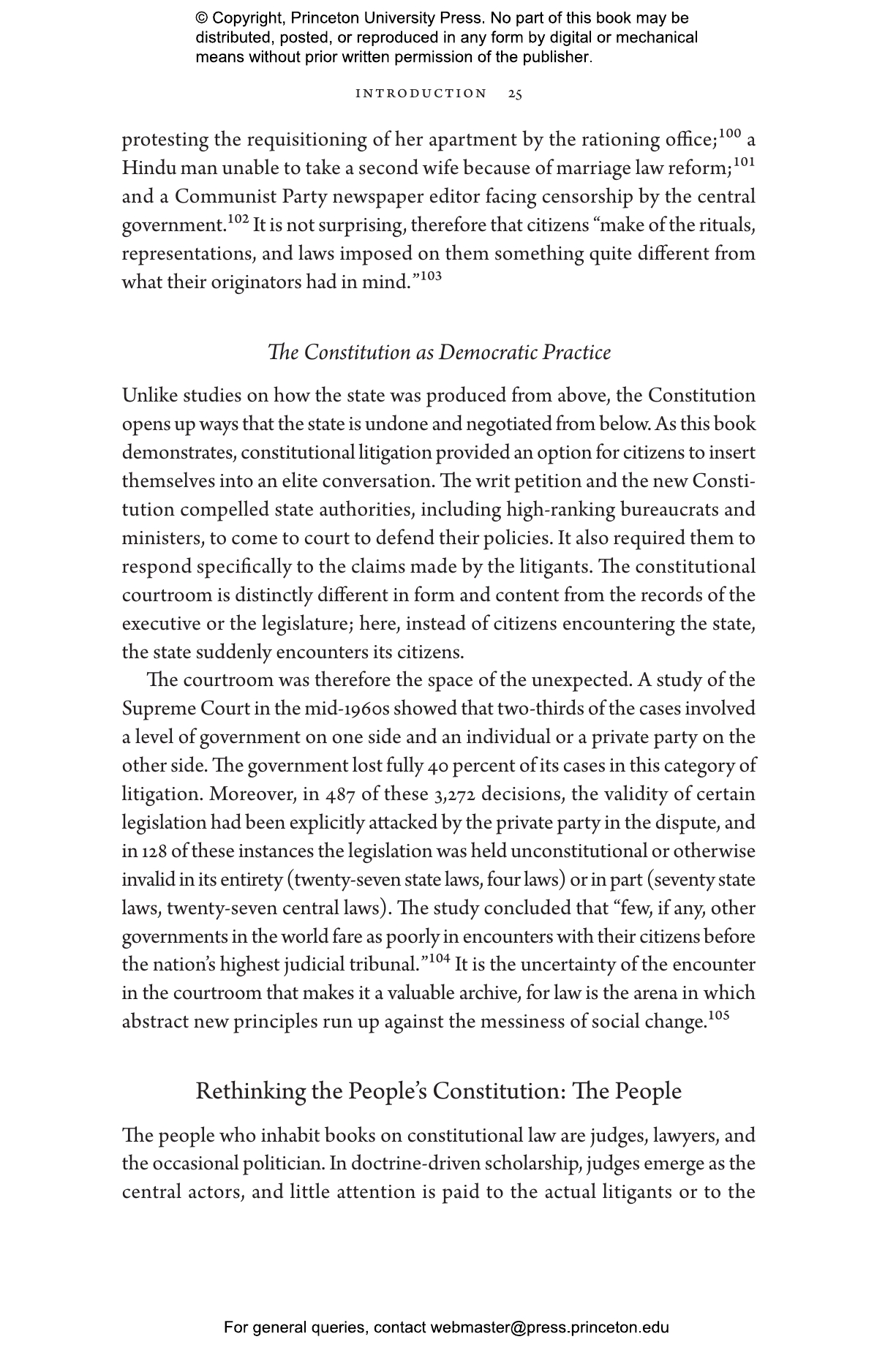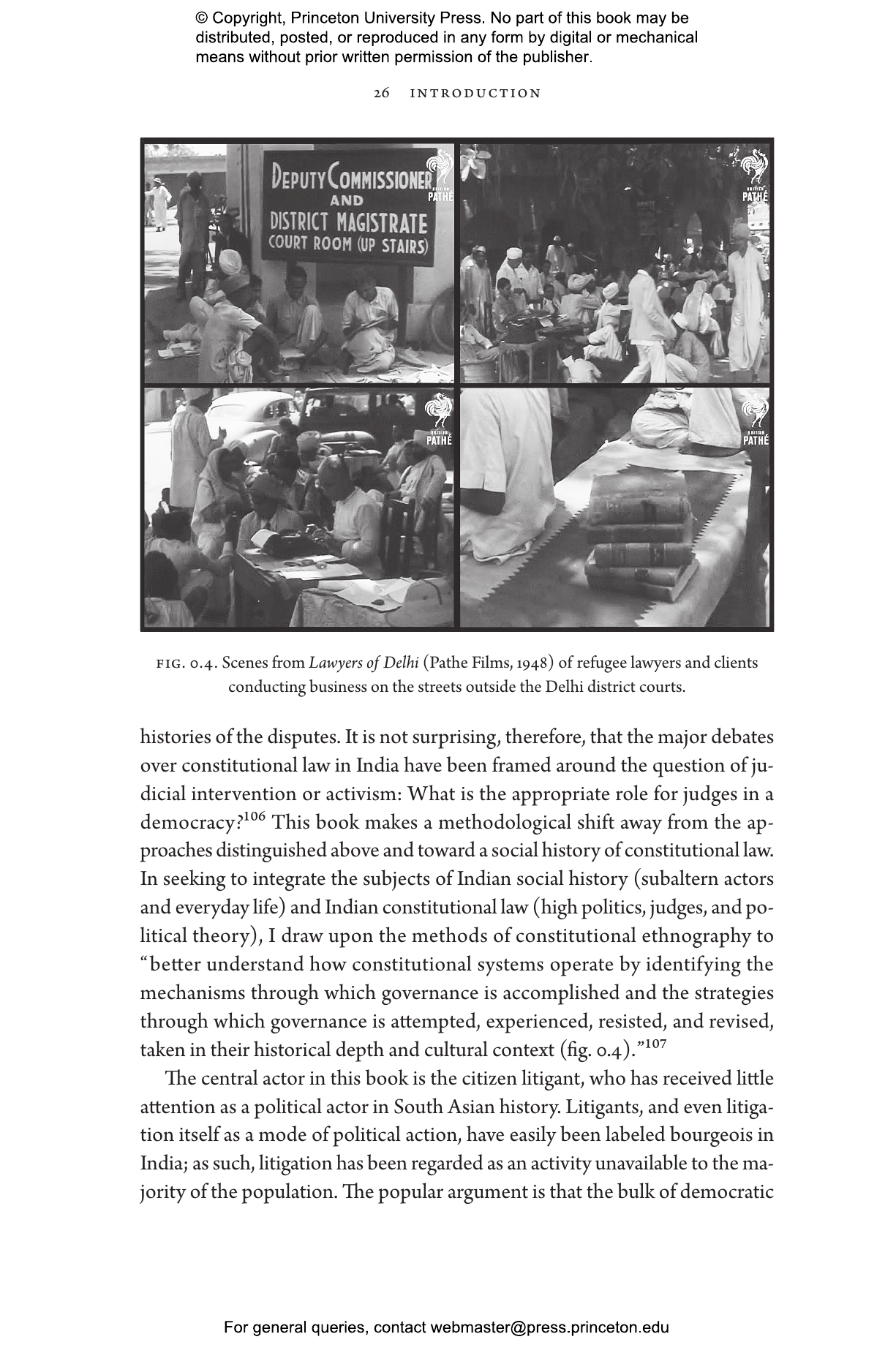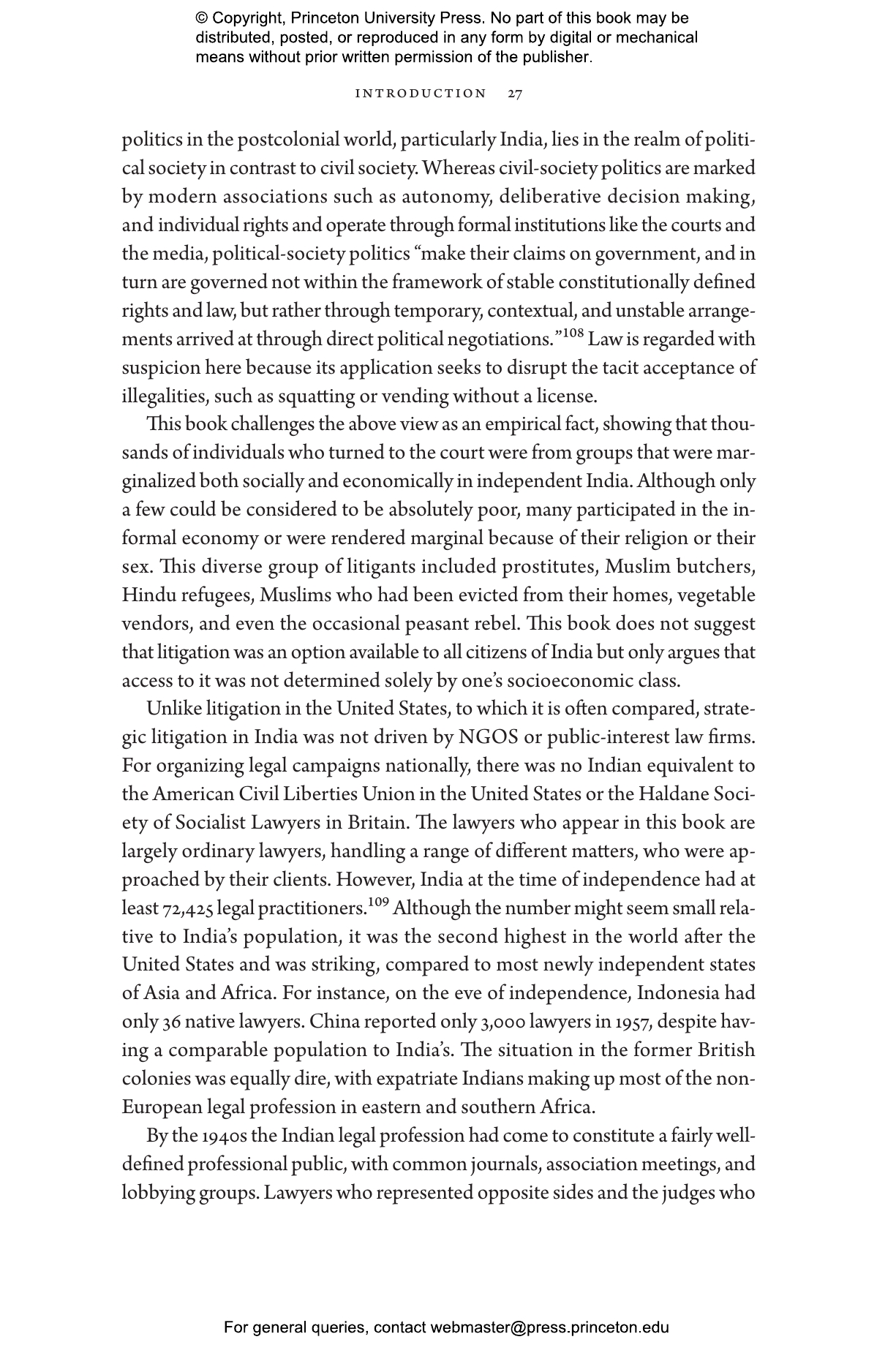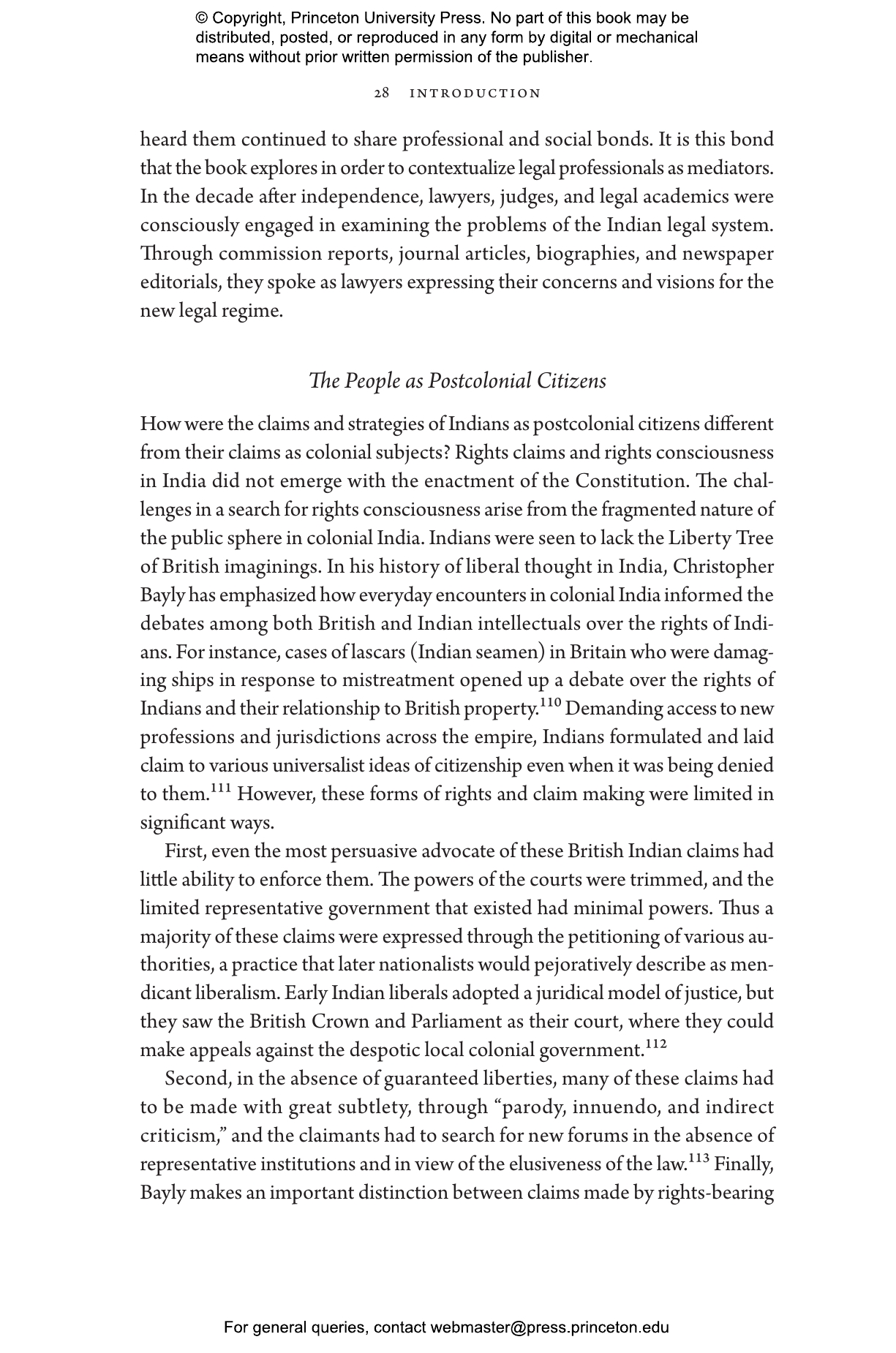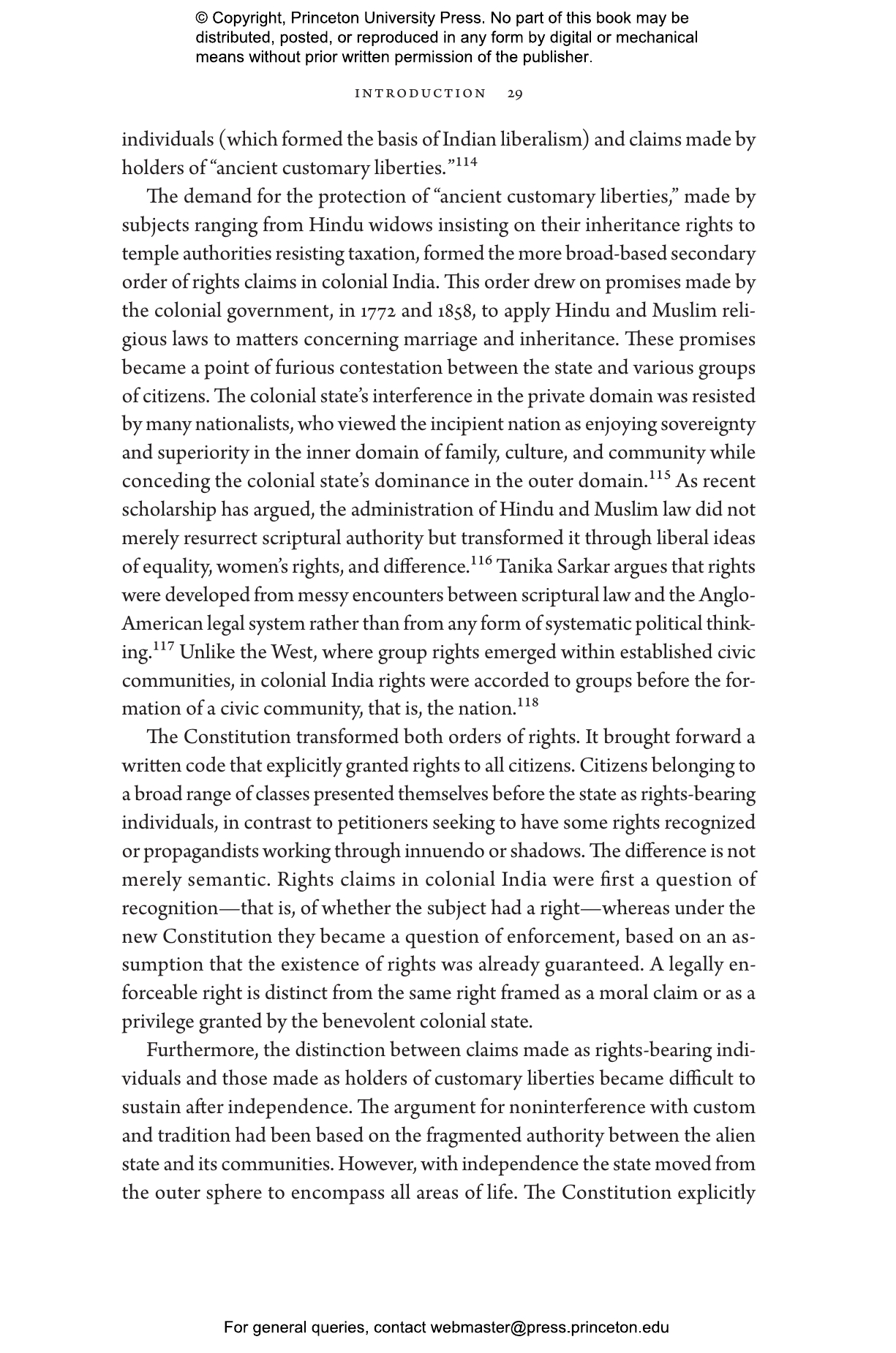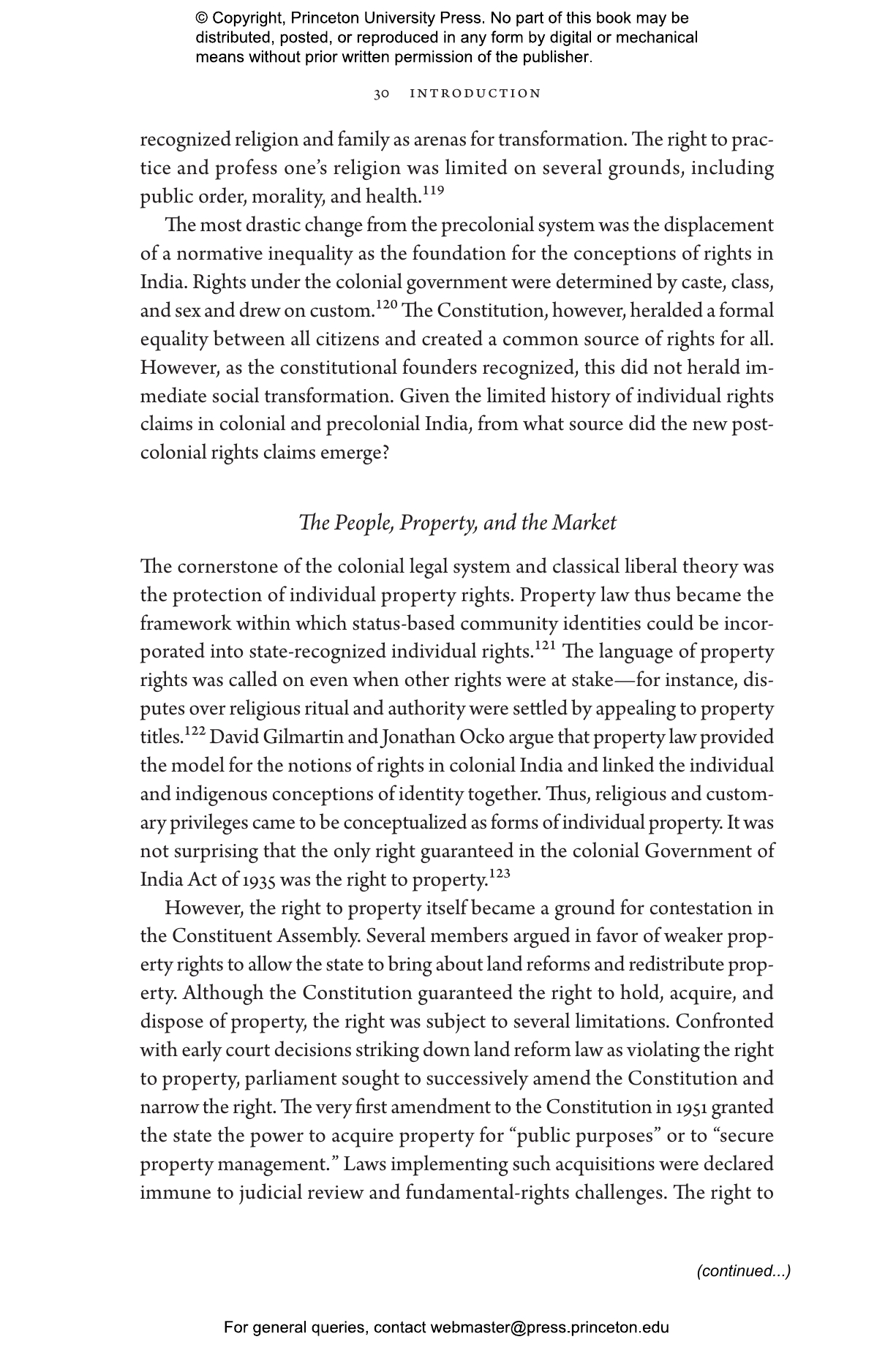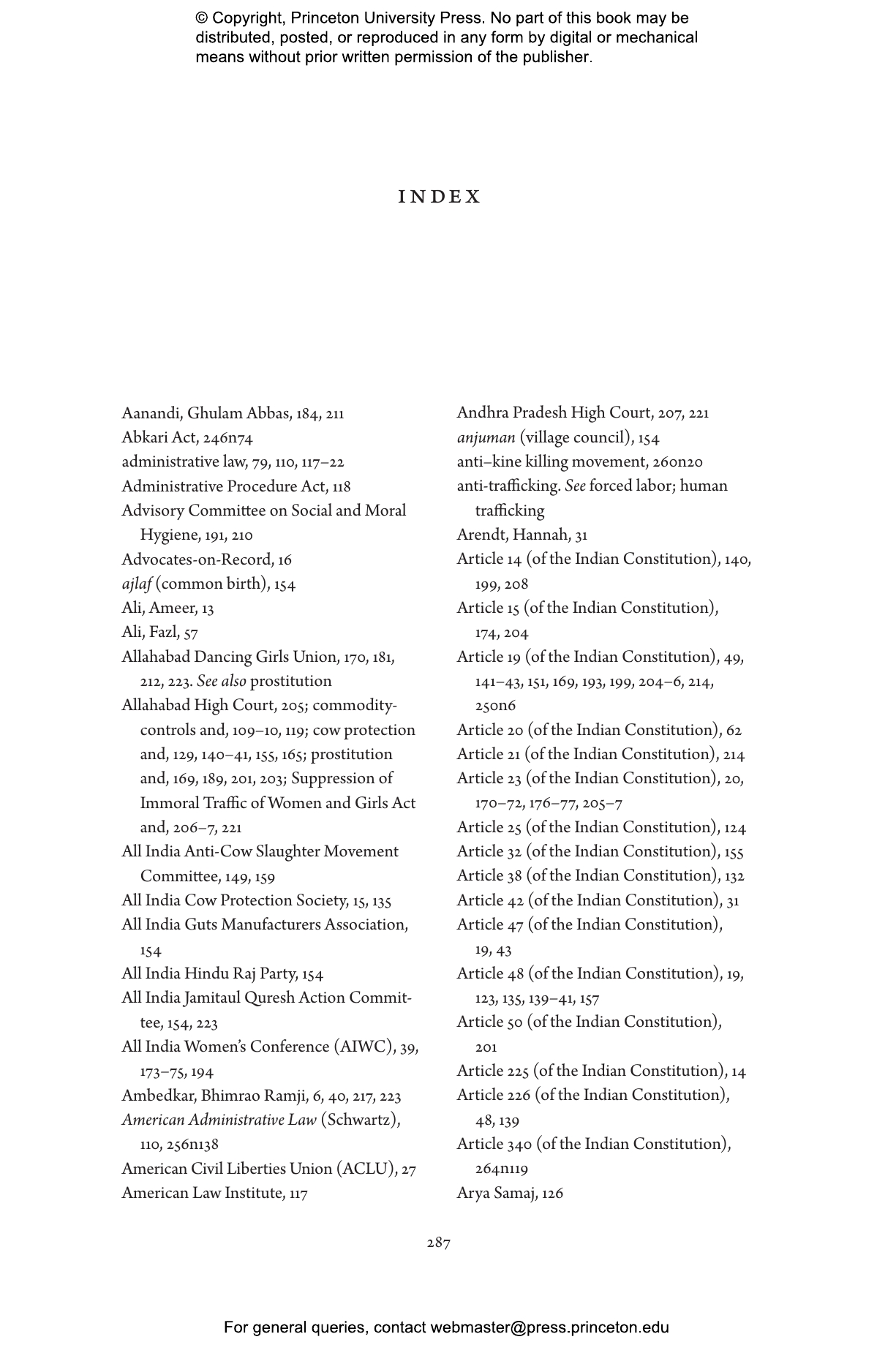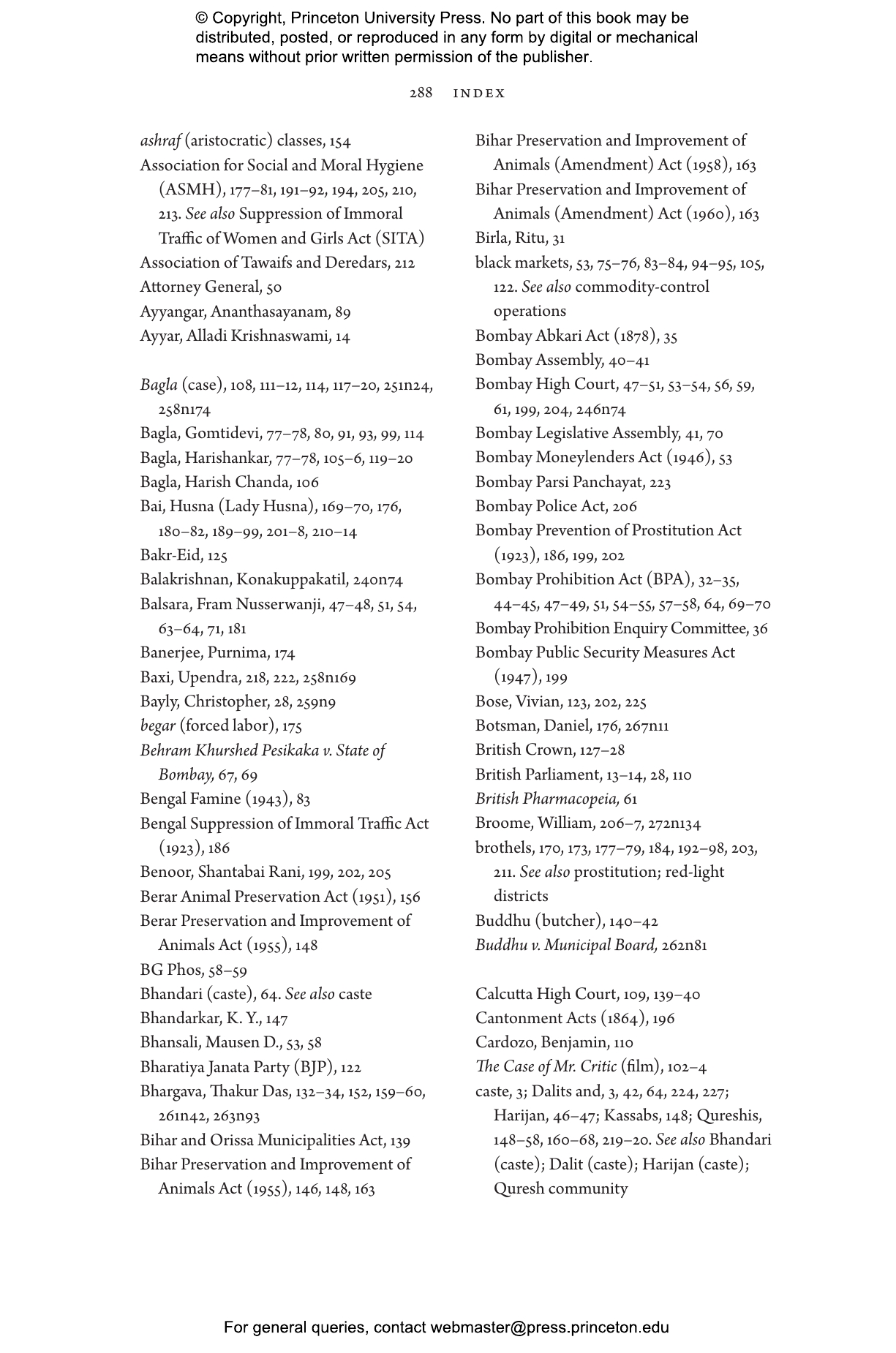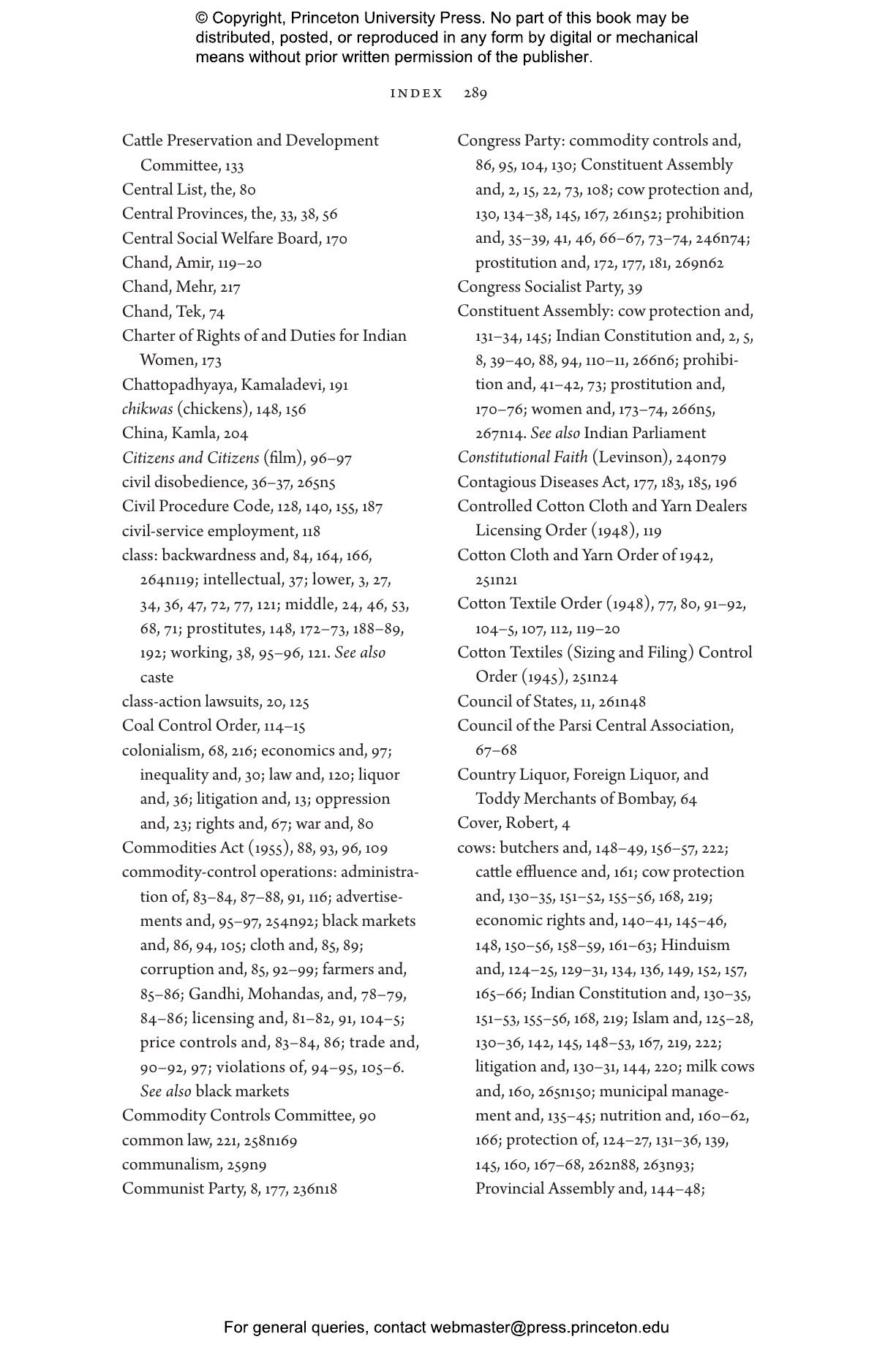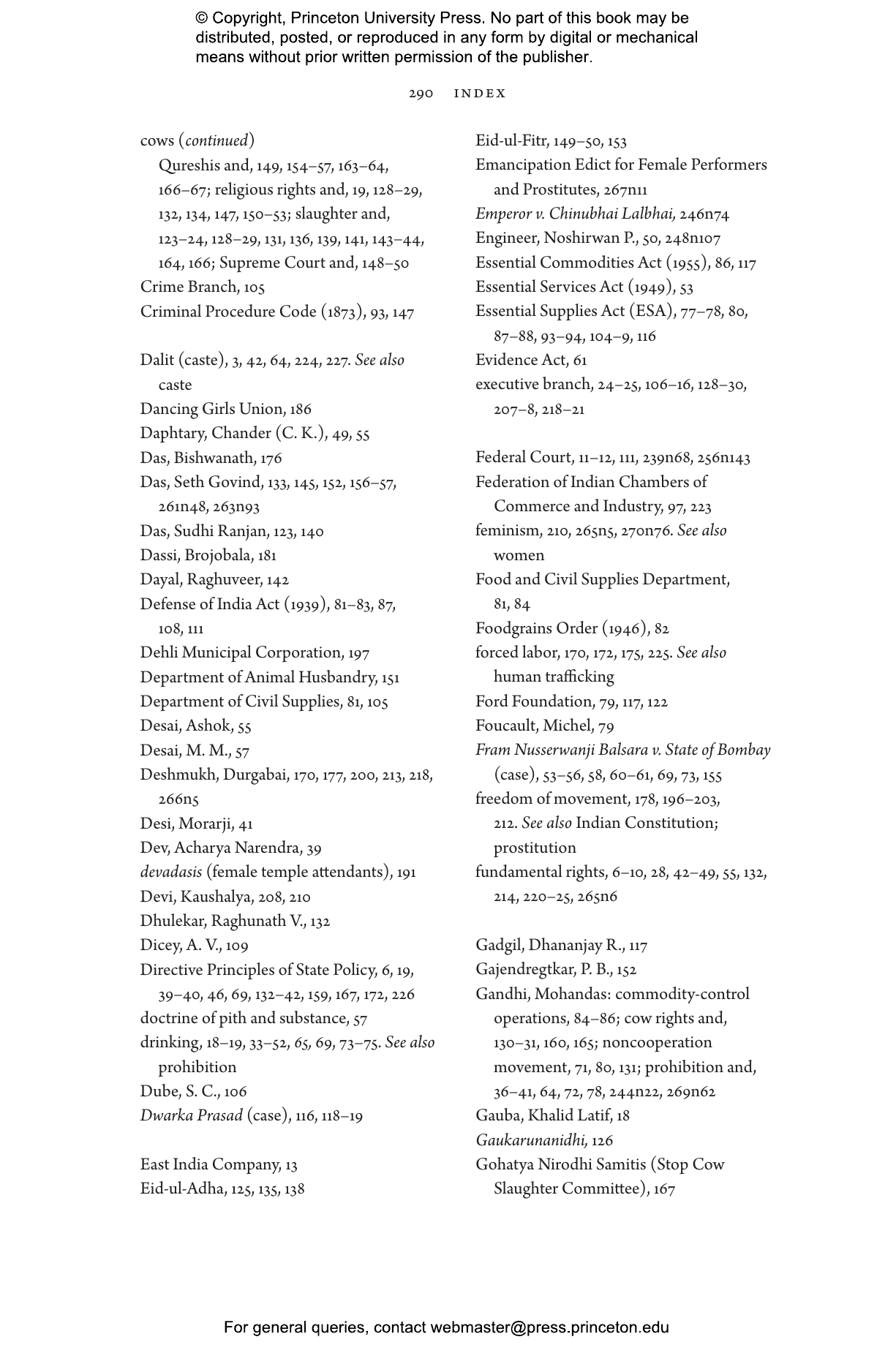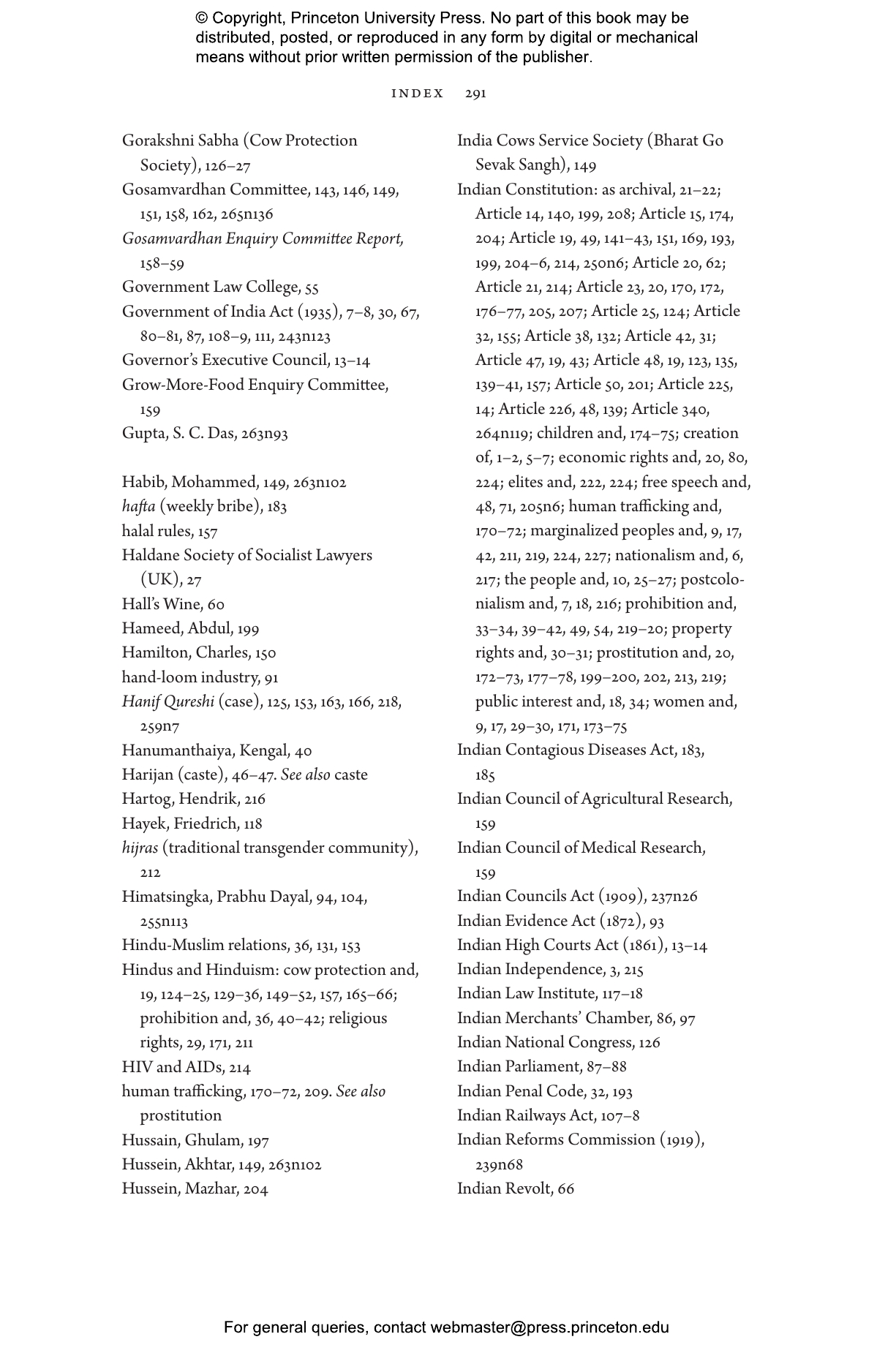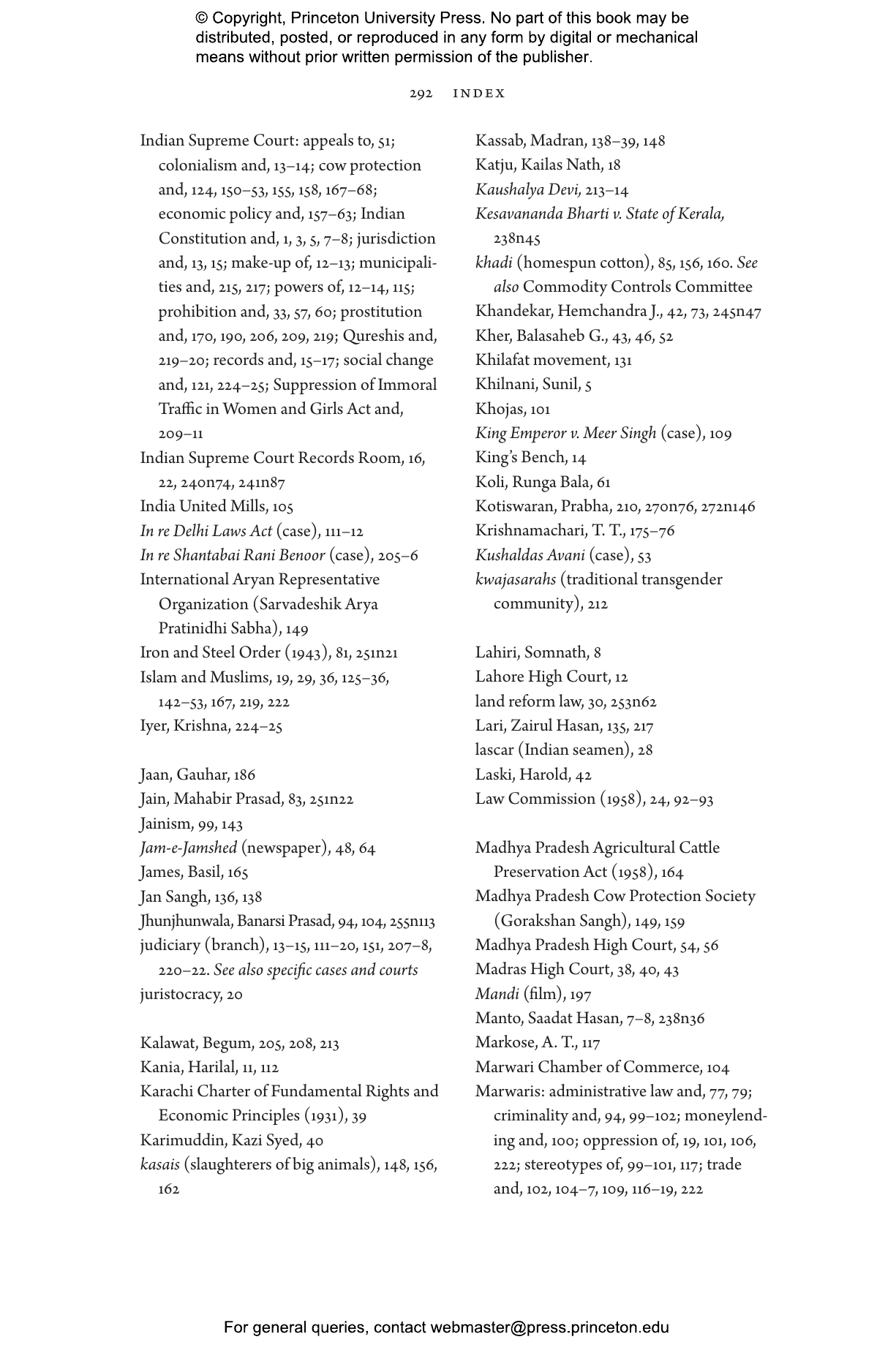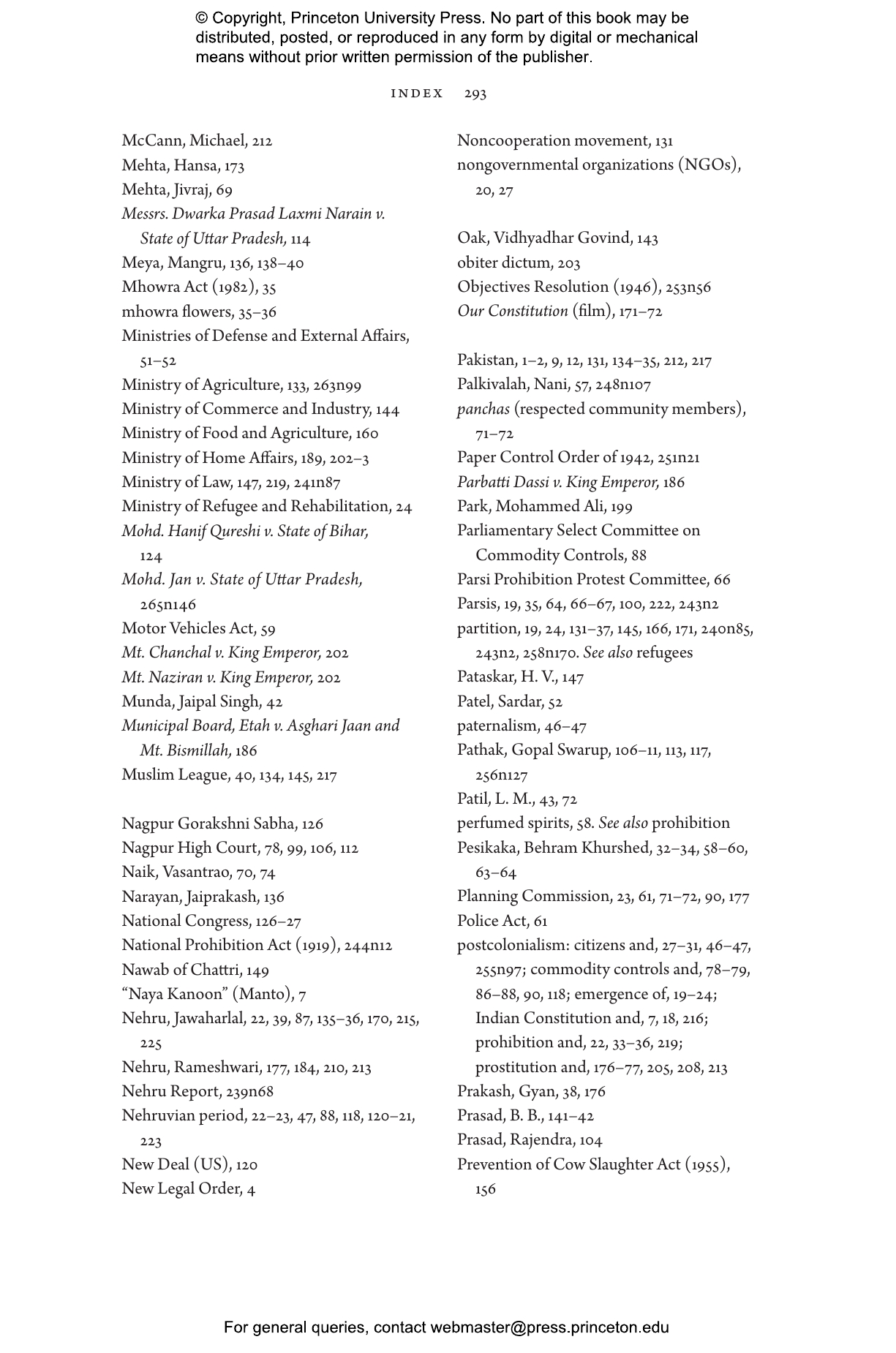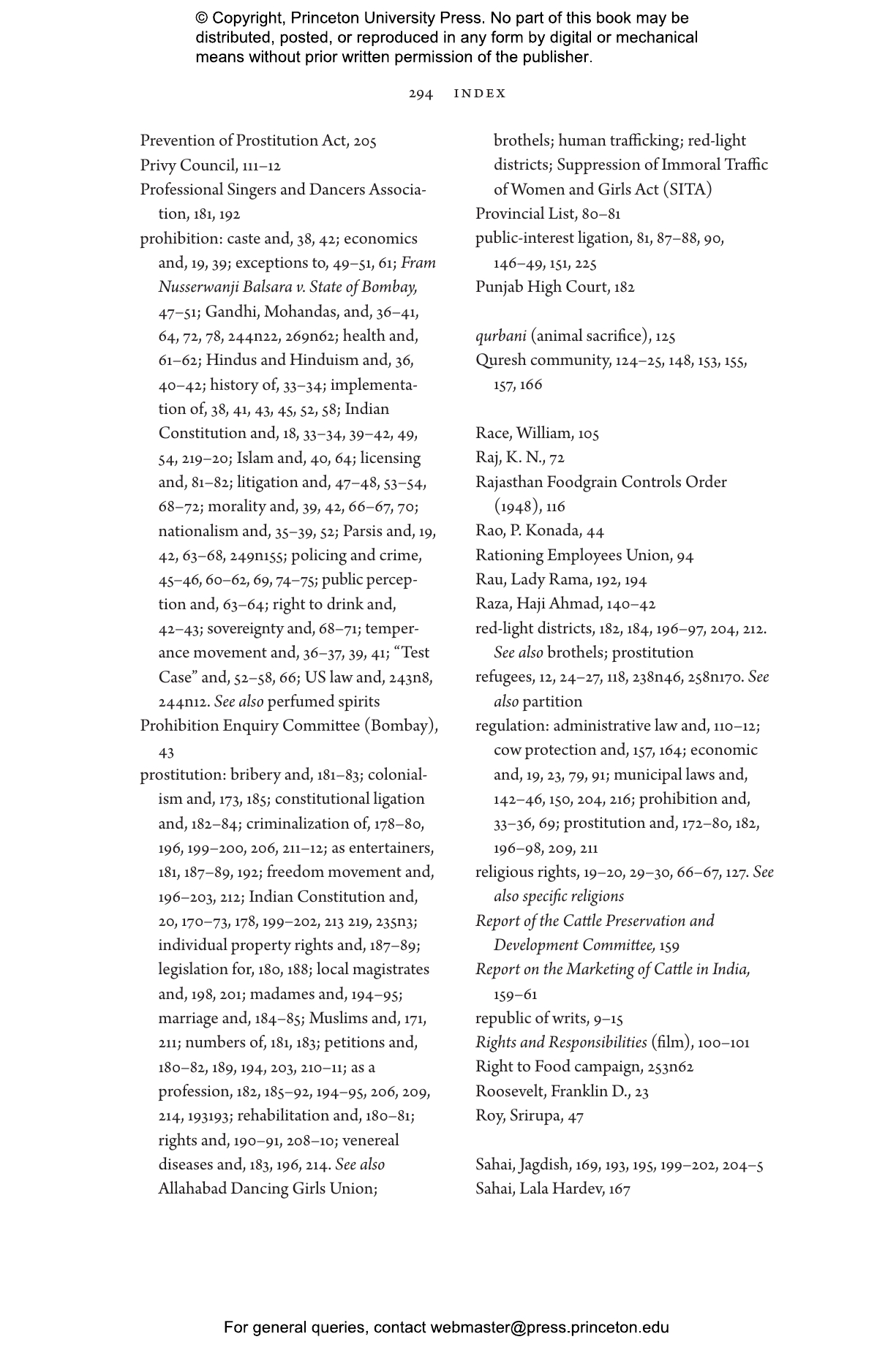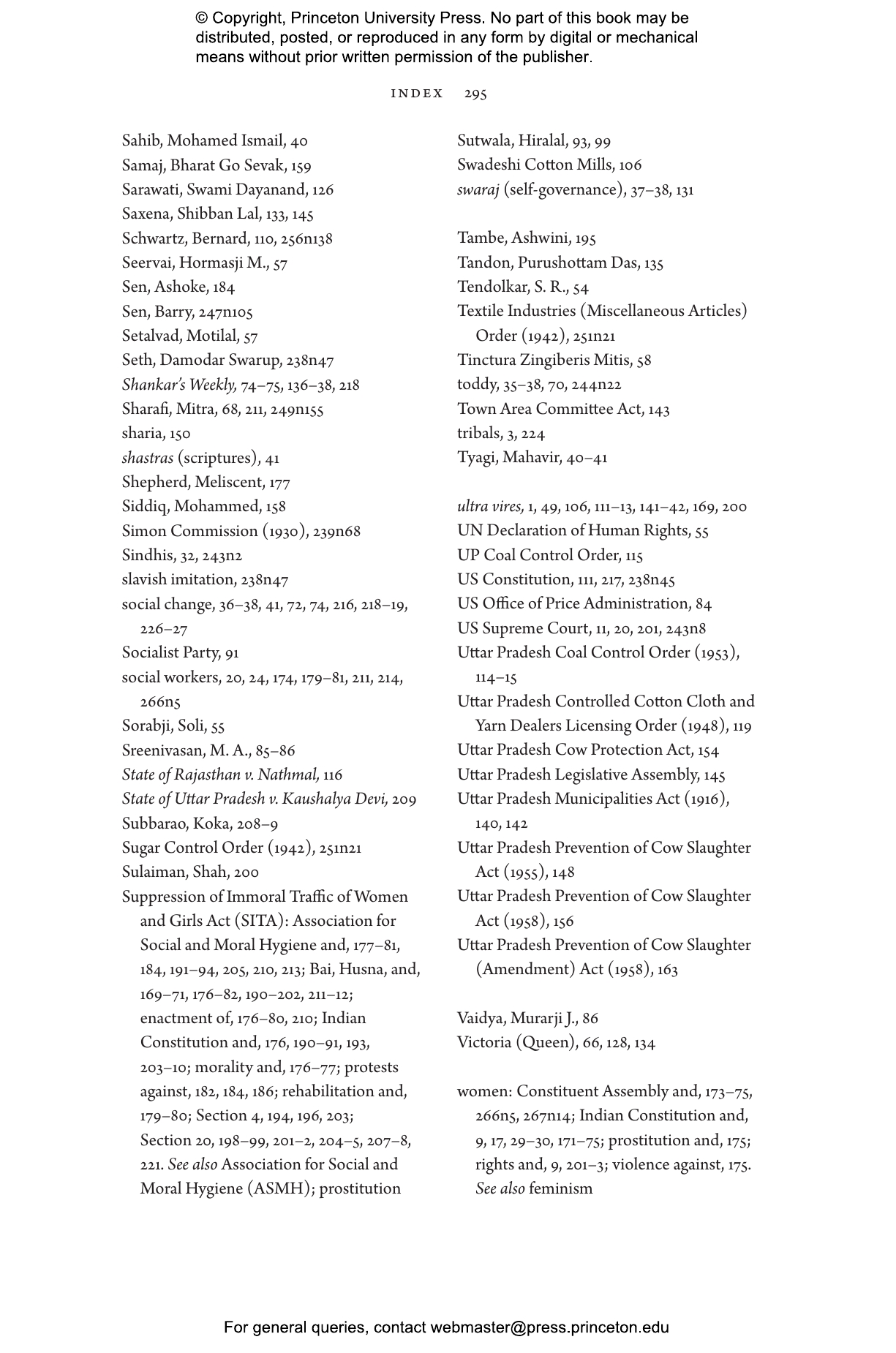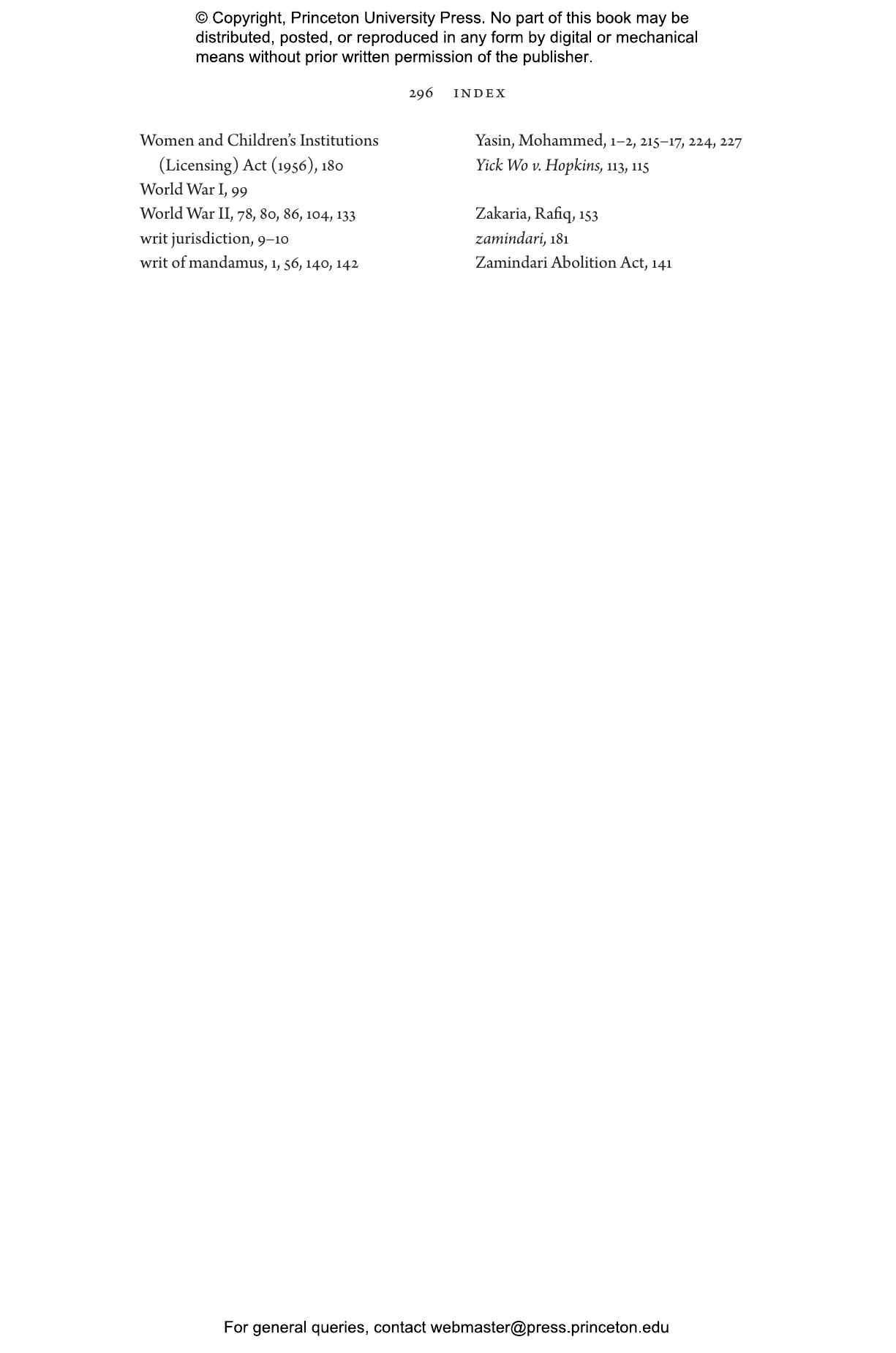It has long been contended that the Indian Constitution of 1950, a document in English created by elite consensus, has had little influence on India’s greater population. Drawing upon the previously unexplored records of the Supreme Court of India, A People’s Constitution upends this narrative and shows how the Constitution actually transformed the daily lives of citizens in profound and lasting ways. This remarkable legal process was led by individuals on the margins of society, and Rohit De looks at how drinkers, smugglers, petty vendors, butchers, and prostitutes—all despised minorities—shaped the constitutional culture.
The Constitution came alive in the popular imagination so much that ordinary people attributed meaning to its existence, took recourse to it, and argued with it. Focusing on the use of constitutional remedies by citizens against new state regulations seeking to reshape the society and economy, De illustrates how laws and policies were frequently undone or renegotiated from below using the state’s own procedures. De examines four important cases that set legal precedents: a Parsi journalist’s contestation of new alcohol prohibition laws, Marwari petty traders’ challenge to the system of commodity control, Muslim butchers’ petition against cow protection laws, and sex workers’ battle to protect their right to practice prostitution.
Exploring how the Indian Constitution of 1950 enfranchised the largest population in the world, A People’s Constitution considers the ways that ordinary citizens produced, through litigation, alternative ethical models of citizenship.
Awards and Recognition
- Winner of the J. Willard Hurst Book Prize, Law and Society Association
- Honorable Mention for the Peter Gonville Stein Book Award, American Society for Legal History
- Shortlisted for the Kamaladevi Chattopadhyay NIF Book Prize, New India Foundation
Rohit De is assistant professor of history at Yale University.
"Elegantly written, meticulously researched, and convincingly argued, this is an impressive contribution to understanding Indian democracy and the role of judicial engagement in buttressing it."—A. Ahmad, Choice Reviews
"It is a book that must be read not only by lawyers and (wo)men of law, but by every citizen who seeks to understand the Constitutional underpinnings of our republic. "—Sanjay Hegde and Pranjal Kishore, Economic and Political Weekly
"This book offers genuinely original insights into the transformation of India’s Constitution into a living reality of social and economic life. Its emphasis on the role of ordinary citizens, and civil society organizations, provides a fascinating perspective ignored in standard accounts focusing on the statecraft of political elites in New Delhi."—Bruce Ackerman, Yale University
“The study of India’s Constitution, perhaps one of the most important documents of the twentieth century, has long been neglected. In A People’s Constitution, De shows how it generated forms of democratic behavior among the nation’s less elite subjects—an important idea, given that India is the world’s largest democracy. No other work so lucidly explains the Indian Constitution, and this informative and original book will be widely read.”—Durba Ghosh, Cornell University
“Rich and deeply researched, this groundbreaking legal history will speak to readers in many fields and countries. De shows how ordinary citizens played a disproportionate role in giving meaning to India’s Constitution, how it became a vehicle for arguing about unresolved tensions among the many groups constituting the new nation, and why constitutionalism became such an important part of modern Indian society. I learned a great deal from this wonderful book.”—Kenneth W. Mack, Harvard University
"This wonderful book fills a critical gap in the history of India’s Constitution and is destined to be a classic. A fabulous, rich, and humorous account of how ordinary people interpreted and shaped the Constitution from below, this is truly a people’s history, placing law within everyday life. Deeply learned yet immensely readable, A People’s Constitution must be read not just by legal practitioners and scholars but by all citizens.”—Nandini Sundar, Delhi University
“A People’s Constitution is a fascinating study of constitutionalism from below and a stellar example of scholarship at the intersection of law and the social sciences. Rohit De shows how ordinary citizens came to experience and internalize a new constitutional culture and to use constitutional remedies in the courts for asserting and claiming their citizenship rights. Simultaneously profound and unpretentious, scholarly and readable, this book will be admired by academics and nonacademics alike.”—Niraja Gopal Jayal, Jawaharlal Nehru University
